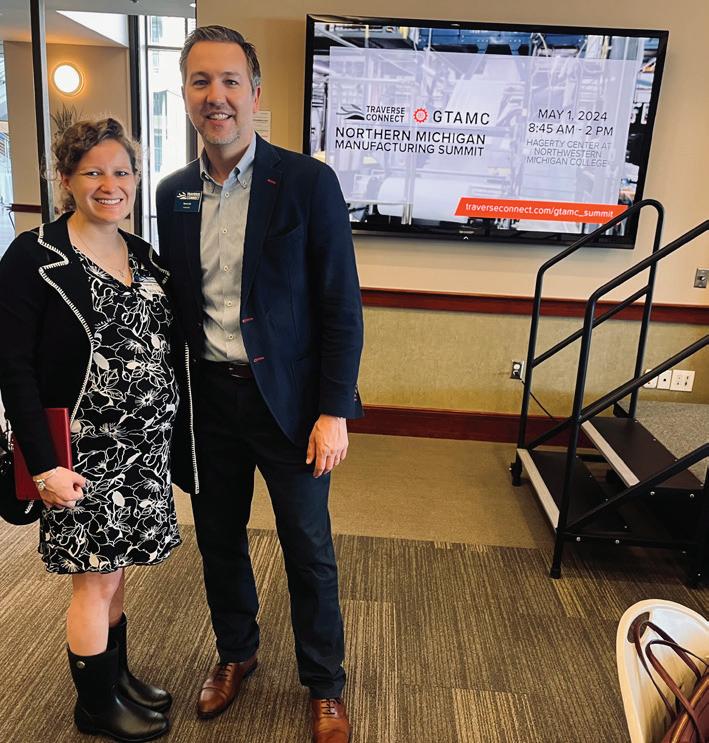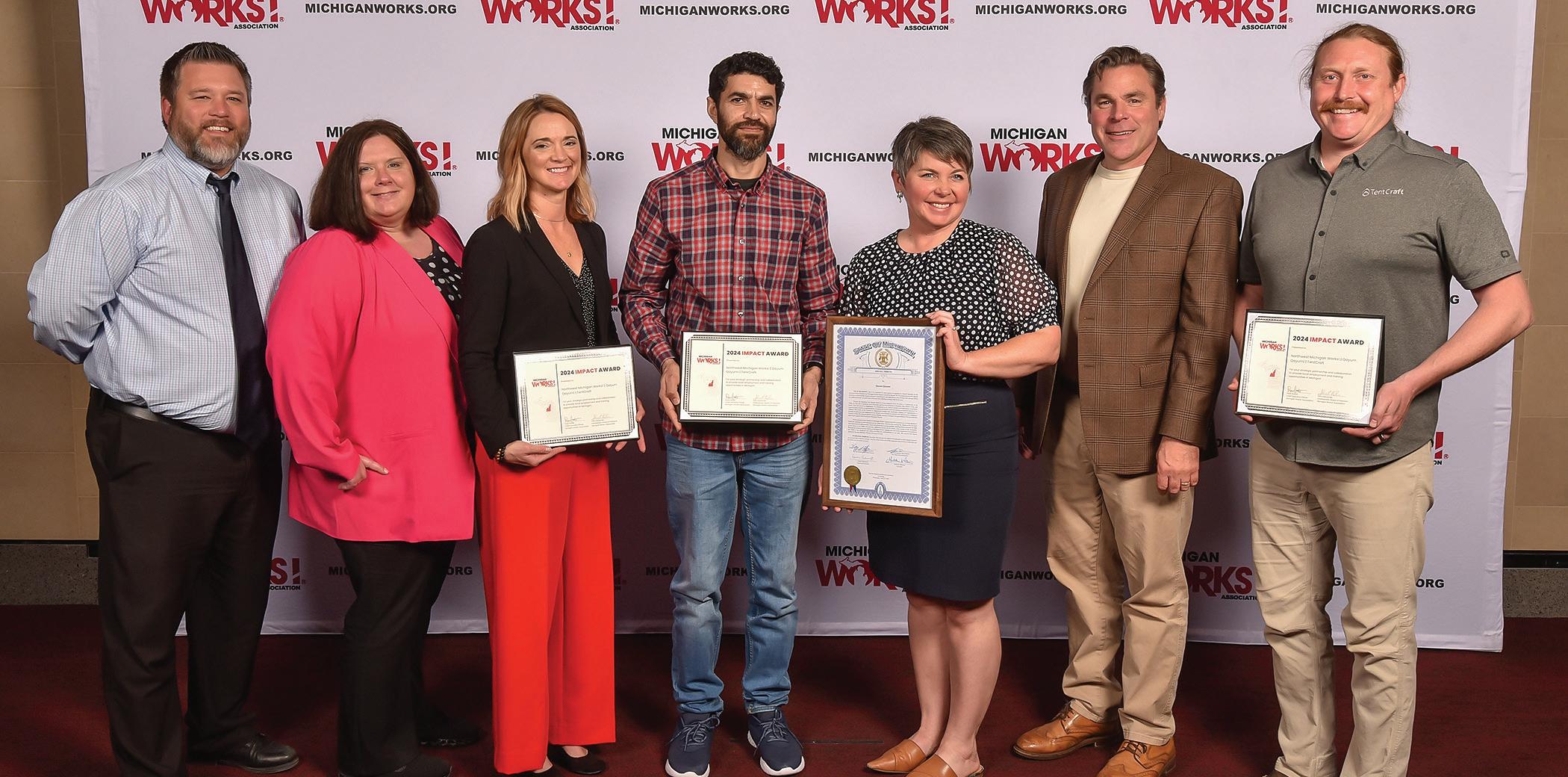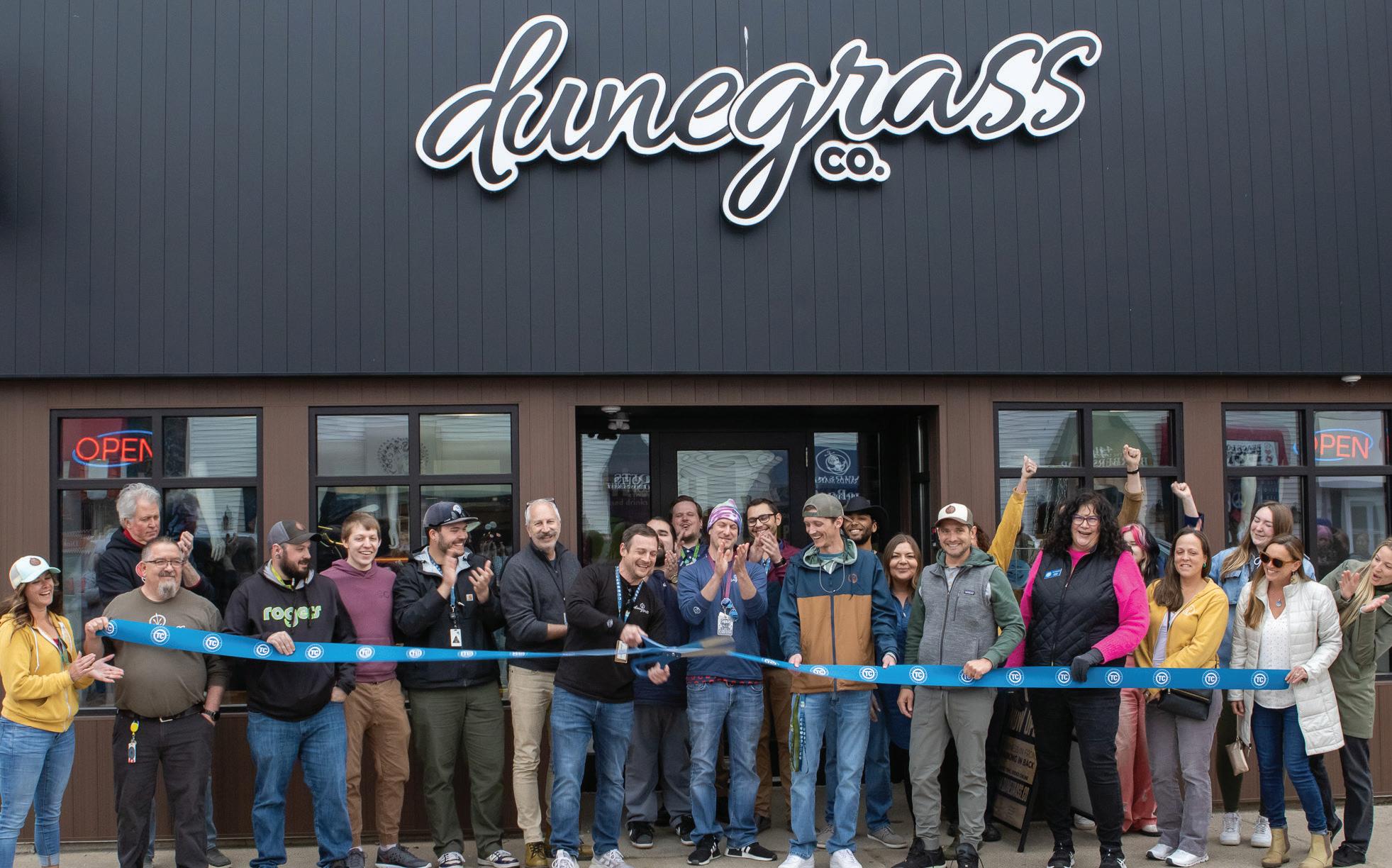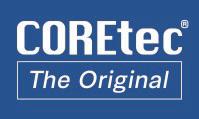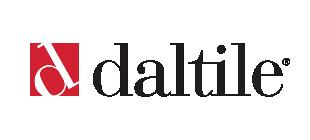Foreign Wave
As labor shortage deepens, seasonal businesses call foreign workers “critical” to their success







As labor shortage deepens, seasonal businesses call foreign workers “critical” to their success






• We uphold a Fiduciary Standard and work with clients on a fee-only basis.
• We do not receive commissions, kick-backs, or soft dollars from product sales, eliminating inherent conflicts of interest.
• Our team of professionals holds designations and degrees such as CFP®, CFA, CPA, MBA, and PhD.
• Charles received his MBA from the Kellogg School of Management - Northwestern University, his MA in Economics from WMU, and Executive Education from Harvard Business School and Columbia University.
Charles Zhang, CFP®, MBA, MSFS, ChFC
• Ranked #1 on Barron’s list of America’s TOP Independent Advisors and is the highest ranked NAPFA-Registered Fee-Only Advisor on the list.*
• Ranked #4 in the nation on Forbes’ list of TOP Wealth Advisors and is the ONLY Independent Advisor in the top 10.**
investment: $1,000,000 in Michigan/$2,000,000 outside of Michigan. Assets under custody of LPL Financial, TD Ameritrade, and Charles Schwab.


Red Spire Brunch House owners Chad Hall and Joshua Anderson have purchased the former Green House Cafe building at 115 East Front St. The partners both worked at Green House Cafe before leaving in 2016 to open Red Spire at The Village at Grand Traverse Commons. Hall says the duo had been looking for a building to purchase – not necessarily to open a restaurant, but as an investment in downtown Traverse City –when the Front Street building came on the market. Hall and Anderson are making renovations, modernizing the space, and working to obtain a liquor license with the goal of opening a new restaurant this fall. Red Spire will remain open as a separate business in Building 50.

Commongrounds Cooperative , the community-owned building on Traverse City’s Eighth Street, recently caught the attention of the The New York Times . The article, “Priced Out of Housing, Communities Take Development Into Their Own Hands,” highlighted the co-op as part of a growing trend of innovative community-funded development. The 47,000 square-foot, mixeduse community center features a mix of commercial and residential floors, including 18 long-term, income-based apartments. Rents are subsidized by five short-term units, utilized by visiting guests, including musicians and artists traveling to The Alluvion, the cooperative’s performing & visual arts venue.
Munson Healthcare was recently among five hospitals nationwide presented with the American Hospital Association (AHA) Dick Davidson NOVA Award for hospital-led collaborative efforts to improve community health. Munson Healthcare was recognized for the Street Medicine program done in collaboration with Traverse Health Clinic and Goodwill Northern Michigan. The partnership launched in 2020 and has provided care to more than 1,000 people experiencing homelessness in the Traverse City area. Munson Healthcare also recently announced a commitment to donate $300,000 to Traverse Health Clinic over the next two years to support expansion of the program.

ATHENA LEADERSHIP RECIPIENT ANNOUNCED
Judy Harrison, founder of Community Impact Partners, president and founder of High Impact Productions, and co-owner of Flat Cap Ventures in Traverse City, is the recipient of the 2024 Athena Leadership Award for the Grand Traverse area. The annual award honors an individual whose work exemplifies collaborative leadership and community impact. Through Harrison’s 15-season fundraiser, Swingshift and the Stars, more than $4.3 million was raised for 122 nonprofits.
INSURANCE AGENCY RECEIVES “SAPPHIRE”
Fischer Insurance has been named a Sapphire Agency by Auto Owners Insurance Group. The award is given to the top 3 out of 160 agencies in the Traverse City region. Fischer Insurance, established in 1969 with offices in Elk Rapids and Bellaire, provides personal, commercial and life insurance across Michigan.
STARTUP FOCUSES ON ‘LOCAL’
We Heart Local is now operating in Traverse City. Founded by Brett and Katharine Sigworth, the startup is focused on


www.goldencircleadvisors.com info@goldencircleadvisors.com
TRAVERSE CITY Curtis D. Kuttnauer (231) 922-9380
PLYMOUTH Fred Manuel (734) 320-6667


community engagement and connection as a way to support local business owners in the Grand Traverse area. Joining is free and members enjoy discounts, activities, exclusive deals and more at area restaurants, wineries, breweries and other businesses. More at weheartlocal.co.
Artful Interiors is now open at 714 Randolph St., Suite 101, in Traverse City. The boutique features furnishings and décor pieces in addition to comprehensive interior design services. The business is owned by Laura Millar. Learn more at artfulinteriors.com.

City is under new ownership. Amy and Lee Goldberg recently sold the restaurant to business partners Matthew and Cheryl Caplan, and Bruce Kaye. The Goldbergs opened the Traverse City store in Septem ber 2022. The Traverse City location is one of 230 stores nationwide and one of seven in Michigan.
Northwest Michigan annual Parade of Homes June 13-16. Builders from the area will unveil nine homes, showcasing the latest trends in home design, technology, outdoor living spaces, and landscaping. More info and tickets available at hbagta.com. Tickets can also be purchased at any of the homes on the tour.
western Michigan new website – Bigsupnorth.org – for its youth mentoring program. The new site serves as a hub for information about how to get involved as a mentor, men tee, or supporter, and learn more about the organization.
Action Water Sports, a boat dealership with locations throughout Michigan including Traverse City, has opened a satellite location at Sommerset Pointe Yacht Club on Lake Charlevoix. The dealer carries MasterCraft, Cobalt, Crest and Barletta brands. Find the new location at 00970 Marina Dr. in Boyne City.

River Club Glen Arbor (RCGA), located on the Crystal River, will host a grand opening this month. RCGA will offer Mexican-inspired eats, signature drinks, riverfront and deck seating, a concert stage, an 18-hole mini-golf course, and a gift shop. Founders are Mike and Gina Sheldon, joined by














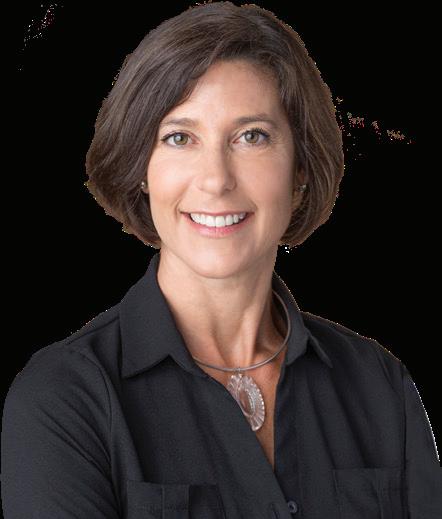



Welcome to June and the kickoff of the Pure Michigan Summer Season.
The return of summer always reminds me of my hometown of Beulah. I grew up on a family cherry farm on the bluff between Crystal Lake and Platte Lake.
Summers brought a lot of work on the farm, the neighbor’s U-pick operation, and the Cherry Hut, as well as sunsets at Point Betsie and unbeatable days on the boat.
The influx of visitors and summer residents from around the world not only meant much-needed economic activity but also the return of music performances, art exhibitions and other cultural events at venues like the Christian Summer Assembly, Crystal Downs, Interlochen Center for the Arts and the Michigan Legacy Art Park. It was clear from a young age that we were lucky from both a natural and cultural resource perspective.
As the summer tourism season dawns upon us, northern Michigan stands at the threshold of new opportunities for economic diversification and growth based on our fortunate combination of outdoor beauty, cultural amenities and enterprising businesses. Recent developments, including the Agritourism Summit presented by MSU Extension, the Outdoor Recreation Economic Impact Study from Networks Northwest, and the Northwest Michigan Arts and Culture Summit, point toward a transformative phase in the region’s tourism and larger economy.
Agritourism, a fusion of agriculture and tourism, encompasses farming, entertainment and leisure experiences that contribute to a healthy lifestyle, strong family
values and a rich quality of life. Agritourism also focuses on finding the best route to encourage rural entrepreneurship and regional economic development while preserving the landscape and character of an area.
Tourism and agriculture each contribute significant revenue and jobs to
activities like boating, golfing, biking and skiing. The COVID-19 pandemic made clear that our abundance of outdoor adventure activity is a key driver of both quality of life for our existing residents and a draw for talented people from elsewhere. Our population growth is a rare bright spot for a state experiencing overall
By leveraging the synergies between agritourism, outdoor recreation, and arts and culture, the region can chart a path toward sustainable development and prosperity.
Michigan’s economy. Still, farmers often struggle financially and encounter resistance from neighbors and elected officials when they attempt to add farm markets, food and drink operations, or other onfarm revenue streams to their operations. Success lies in finding the right balance between helping our farmers and economies thrive while preserving our rural and agricultural character. The recent Agritourism Summit, held in Traverse City, focused on the potential for farm families to combine agriculture and tourism while also educating the larger public on the need to support farmers as they diversify into agritourism to sustain their farms –and our region’s farming heritage.
Similarly, northern Michigan’s outdoor economy presents a wealth of diversification opportunities beyond traditional
population decline. Meanwhile, the surge in consumer spending since the pandemic on recreational vehicles, sports equipment, and watercraft underscores the growing demand for unique outdoor experiences.
Networks Northwest’s recent Outdoor Recreation study points to these attributes as building blocks for economic growth. Our region’s abundance of forestry, fishing and hunting employment – combined with higher-than-average concentrations in manufacturing and arts, entertainment, and recreation jobs – is a very strong foundation for entrepreneurial ventures catering to outdoor enthusiasts. Initiatives such as the Fresh Coast Maritime Challenge and the rise of electric-powered boats and off-road vehicles are just a few examples of what the Outdoor Recreation Technology sector could mean for our region.
EDITORIAL
ON THE WEB
tcbusinessnews.com
PUBLISHER
Luke W. Haase
lhaase@tcbusinessnews.com
CONTRIBUTING EDITOR
Gayle Neu
gneu@tcbusinessnews.com
HEAD WRITER
Craig Manning
COPY EDITOR
Becky Kalajian
As we think about our traditional economic drivers of agriculture and tourism, it is also important to pay attention to the economic significance of a thriving arts and cultural sector. Economies with thriving creative industries do not just perform well; they outshine their peers economically. Arts and creative industries not only contribute creative goods and services but also nurture a skilled and innovative workforce, boost consumer spending, and create an environment conducive to economic and population growth.
Arts and culture serve as a cornerstone of northern Michigan’s economic vitality, contributing more than $15 billion to the state’s economy. From independent artists to renowned institutions like Interlochen Center for the Arts, the region boasts a vibrant cultural landscape that attracts residents and visitors alike. Championing our arts sector through investment, patronage and promotion serves to both enhance our quality of life but also drive economic growth by nurturing creativity and innovation.
As northern Michigan embraces these new opportunities, the tourism economy stands poised for unprecedented growth and resilience. By leveraging the synergies between agritourism, outdoor recreation, and arts and culture, the region can chart a path toward sustainable development and prosperity. As we enjoy another perfect northern Michigan summer, the possibilities for economic diversification and community enrichment are boundless.
Warren Call is the president and CEO of Traverse Connect.
CREATIVE DIRECTOR
Kyra Poehlman
CONTRIBUTING WRITERS
Ross Boissoneau
Art Bukowski
Kierstin Gunsberg
Rick Haglund
WEB PRODUCTION: Byte Productions
MAILING/FULFILLMENT
Village Press
DISTRIBUTION
Gerald Morris
SERVING:
Grand Traverse, Kalkaska, Leelanau and Benzie counties
AD SALES
Caroline Bloemer
cbloemer@tcbusinessnews.com
Lisa Gillespie
lisa@northernexpress.com
Abby Walton Porter aporter@northernexpress.com
Kaitlyn Nance knance@northernexpress.com
Todd Norris
tnorris@tcbusinessnews.com
Michele Young myoung@tcbusinessnews.com
4020 Traverse City, MI 49685 231-947-8787
Periodical postage qualification pending at Traverse City, MI.
POSTMASTER: Send address changes to The Traverse City Business News, PO Box 1810, Traverse City, MI 49685-1810.
The Traverse City Business News is not responsible for unsolicited contributions. Content ©2024 Eyes Only Media, LLC. All rights reserved.
Norm Plumstead heads up Honor Bank, a community-based operation with eight branches, 75 employees and about $390 million in assets. He was kind enough to show us around his space in Traverse City, where the bank recently built a building along the Boardman River. Have an idea for a future “From the Desk Of” feature? Email Art Bukowski at abukowski@tcbusinessnews.com.


1. One of my favorite books is ‘Endurance,’ the story of Antarctic explorer Ernest Shackelton. (The above text) is purportedly the ad that he ran when he was recruiting people for his voyage. I like it because it speaks to the people we are trying to find here, people who believe in what we’re trying to accomplish as a community bank.
2. Here’s some running swag. I kind of graduated from the marathon distance (26.2 miles) as I got older and slower, and I also wanted a bit more of a challenge, so I began running 50 mile races and then ultimately a few 100 mile races. I attempted three and completed two. I think it’s reflective of my personality. Steady and persistent, maybe a little bit stubborn.
3. Isle Royale map (on wall): That’s a map of Isle Royale. I’ve gone there a number of times, and it’s
probably my favorite place to be. I’ve backpacked and paddled all over there.
4. When I need a little bit of a break, it’s great to mess around with the Rubik’s cube. It gives my mind something else to concentrate on.
5. Seat not in use, under desk: I stuff my chair under there because I sit as little as I can. It’s a health thing, and we’ve also invested in these great standing desks.
6. I’ve always liked elephants. I can’t really explain it. I think it’s their purported long memory span or the family structure. These have all been gifts from people along the way. My wife brought me one from Malawi.
7. These are our five core values: ‘Pull up a chair, we’ve got your back, be a neighbor, let’s be real and find the opportunities.’
















A federal program that allows local businesses to use foreign workers is arguably more important than ever as businesses of all stripes desperately struggle to find staff.
There are more than 40 types of visas that foreign workers can secure to work in the United States. These visas cover a wide variety of job types and intent –some cover workers who seek permanent citizenship, others those who plan to return home after working – and they help fill tens of thousands of employment gaps across the country.
Several are used in our region in a variety of applications. Many who toil in local farm fields participate in the H-2A program, for instance, which is specifically for temporary agricultural workers.
And while H-2A has been of considerable importance to local farmers, you’d be hard pressed to find a program more impactful to the local economy than H-2B. This program is focused on sea-
sonal, non-agricultural work and is used heavily by the local hospitality industry to plug holes in housekeeping, food service and much more.
Hundreds of these workers from dozens of countries (more than 80 countries are eligible, according to federal guidelines)
workers are to their operations.
“Over the last 10 years, this has become mission critical. For many positions, if we didn’t have (H-2B workers), we would be limited in what we could offer in terms of our business,” said Tim Norman, general manager of the Grand Traverse Resort.
“There’s this perception that we’re taking away American jobs. We work really, really hard to dispel that perception, because it’s absolutely not the case, but unfortunately it’s something that’s out there.”
- Jennifer King, senior vice president of human resources, Crystal Mountain
are employed in the region during the peak season. And while they work at a variety of businesses, the majority are at local hotels and resorts. Leaders there can’t say enough about how vital these
“We’d be offering less, be it in rooms or food and beverage or other services because we simply wouldn’t have the personnel.”
And while it provides a huge boost to local businesses, the program is expensive,
time-consuming, and wrought with uncertainty, particularly because businesses sometimes wait until the last minute before finding out how many workers they’ll receive – or if they’ll get any at all.
“It’s extremely stressful,” said Jennifer King, senior vice president of human resources at Crystal Mountain. “It makes it very, very difficult to plan from one season to the next, not knowing if you are going to have your staff.”
The Grand Traverse Resort aims to fill about 100 H-2B slots per year, with a lesser amount of J-1s mixed in. The latter is for workers in programs that promote cultural exchange, with many J-1 workers being students.
That’s a big chunk of the 600-plus workers the resort needs during the peak season. But it’s necessary, Norman says, because finding local workers to fill those positions has proven to be quite literally impossible.
“We would much prefer to have fulltime, year-round, local people working in these positions, but we just can’t find the numbers we used to have,” he said. It’s the same story wherever you go, particularly in the hospitality industry. And it’s getting worse, with hundreds of additional hotel rooms coming online over the next year or so.
“There’s just not enough local people to do all of the work, and not just in hospitality, but all of the work in this area in general. It’s just a fact,” Crystal Mountain’s King says. “We will hire every single domestic applicant that we get, and we still will not fill the need. And that’s what this program was made for, to help employers fill the need.”
King uses both H-2Bs and J-1s, with perhaps 20 of the former and 40 of the latter. Over at the Delamar in Traverse City, they also make use of both, but general manager Jordan Berkowitz much prefers the H-2Bs, which he calls a “godsend.” That’s in large part because the H-2B workers usually stay twice as long as J-1s, and he says the H-2Bs have outstanding work ethic.
“The J-1 program is great and all, just the only problem is the stay-dates, because they’re all students. So we only get them from June 15th to, let’s say, September 1st,” he said. “May, June, and
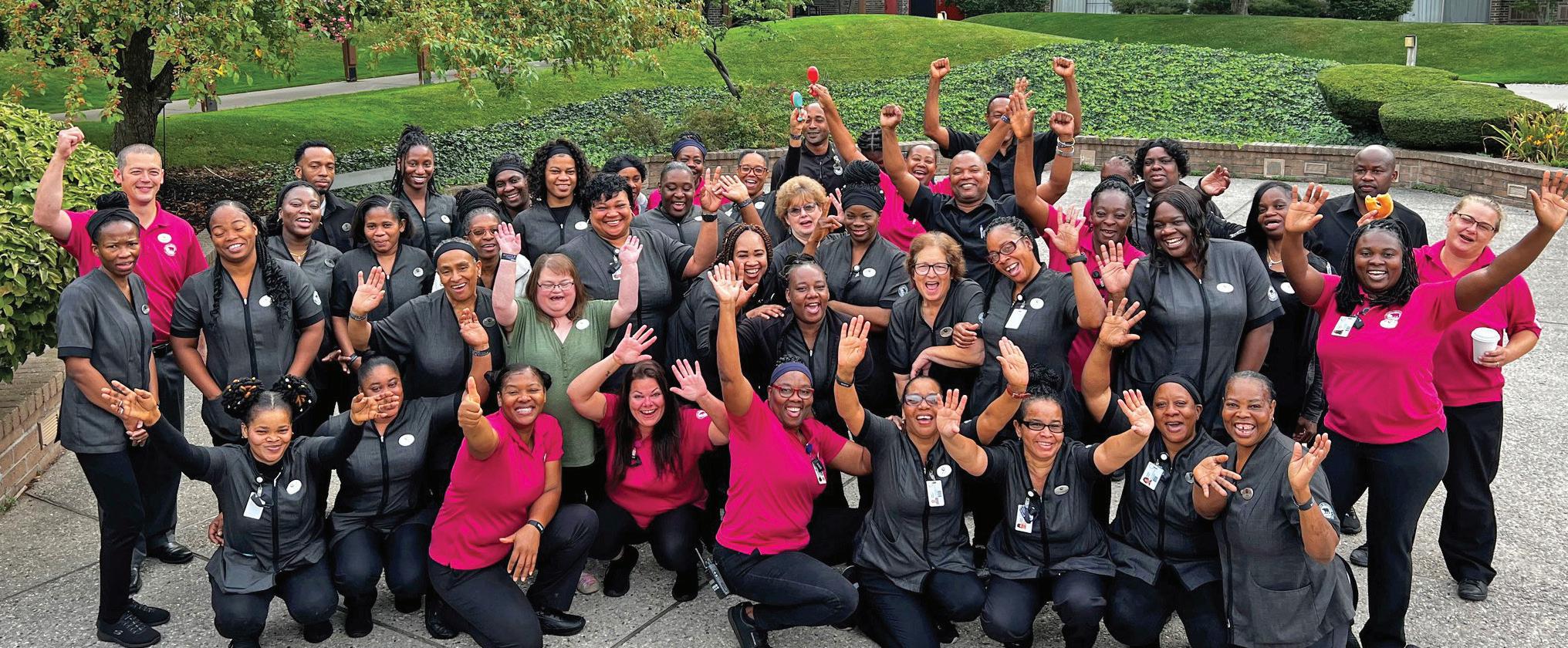
especially September are still extremely busy still up here.”
Berkowitz says H-2B workers are “the most grateful, hardworking people you’ve ever seen in your life,” and said he’d have to close portions of his hotel – or otherwise reduce service – without them.
“You just wouldn’t be able to operate in northern Michigan without H-2Bs. There just isn’t a talent pool up here big enough,” he said. “There’s no big metropolitan area, and on top of that there’s just too many hotels, too many restaurants, too many of everything, to the point
where we’re fighting for a talent pool that’s already only probably 60 percent of what we need.”
It’s not just for hotels and resorts.
Restaurants use these workers, as do certain small businesses that can show a seasonal need. At Anderson’s Glen Arbor Market, owner Brad Anderson had two H-2B workers last year and hopes for five this year.
For Anderson, the program delivers quality and consistency of labor on a regular basis, something that he’s struggled to find with the local talent pool alone.
This is especially true for a business that’s open seven days a week with extended hours.
“A lot of times when you hire locally, there’s a lot of conflicts with camps and family reunions and all the different things that people want to do in the summer,” he said. “By investing in foreign labor, we have the employee willing to work five or six days a week, every single week… You’d rather hire local, but you just cannot get local labor that’s willing to work efficiently and consistently in the high season.”

Employers of H-2B workers are used to fighting misconceptions and misinformation about the program, much of it steeped in the often-inflamed rhetoric tied to immigration and anything that might impact American jobs.
“Often this subject gets lumped in with immigration, and it really shouldn’t, because it really has nothing to do with immigration,” King says. “This is 100% about employers and employment.”
King points out that unlike other types of visas, the H-2B program is specifically a nonimmigrant program that sets time limits on how long workers can be in America.
“They’re here to do a job and support their families. They’re not looking for an opportunity to stay in America forever. They’re not looking for a path to citizenship,” King says. “They’re looking to come here, work their season, support their family, and then go back home to their family.”
That said, workers can and do return year after year after time back in their home country, giving employers some valuable institutional knowledge.
“We’re very blessed in that we’ve been doing this for so long that over 50 percent of our H-2B workers, particularly for the summer, have five plus years of service with us, and some have as many as 15,”
said the Grand Traverse Resort’s Norman. “We specifically ask for them and they specifically ask for us.”
Among the biggest misconceptions with the H-2B and other visa programs are that these workers are providing cheap labor or taking American jobs. Everyone involved strongly dismisses both suggestions.
“No one’s saving money by doing H-2B workers. It’s a very, very expensive endeavor,” said Trevor Tkach of Traverse City Tourism, which represents the local hospitality industry. “So when people talk about taking jobs or it being a cheaper alternative, that’s just not the case.”
Employers have to cover housing costs for H-2B workers, along with transportation to and from their home country. That’s in addition to application and other fees paid to the government and considerable in-house and contracted costs (most large employers use an attorney) to navigate the program.
“At the end of the day, it’s thousands of dollars per employee that you’re investing to get them here, and that’s in addition to what you have to then pay them (to work),” Norman said. “We love our foreign workers, a lot of them are like family, but I would love to get rid of the thousands of dollars I’m spending to get them here and have them work here.”
King says it’s “infuriating” to hear
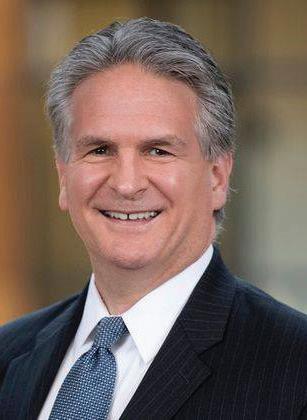
people assume that employers are saving money by using foreign workers when the cost data shows an entirely different story.
“By no means whatsoever is this an opportunity for cheap labor,” she said.
As far as taking American jobs, King goes back to the point made by her and others – there aren’t enough willing American workers to fill those jobs in the first place.
“There’s this perception that we’re

taking away American jobs. We work really, really hard to dispel that perception, because it’s absolutely not the case, but unfortunately it’s something that’s out there,” she says.
Employers of H-2B workers first have to post the jobs and prove they can’t fill them locally, said Jim Aldrich, a downstate attorney who specializes in the program. The government reviews those postings to make sure the offered wage is fair. Employers are even required to

At its heart, a business is about people. A group of people coming together to create something bigger than themselves. To create a solution or a product or an experience in the service of other people. At Huntington, it’s our belief that running a business is about more than making money, it’s about making people’s lives better. So let’s roll up our sleeves and get to work, together.
“You wouldn’t be able to operate in northern Michigan without H-2Bs. There just isn’t a talent pool up here big enough. There’s no big metropolitan area, and on top of that there’s just too many hotels, too many restaurants, too many of everything, to the point where we’re fighting for a talent pool that’s already only probably 60 percent of what we need.”
- Jordan Berkowitz, general manager, Delamar Traverse Citycontact past domestic employees to see if they can come back to work. All of this is designed to make sure that employers truly can’t find domestic workers for these positions, Aldrich says.
“Basically, the process is intended to protect U.S. workers,” he said. “That’s the whole reason for all of the hoops that these employers have to jump through.”
Those in the industry say that rather than harming the American worker, a regular influx of foreign support can help domestic employees by ensuring the health of their employers.
“Something that has been recognized nationally is that there are many people who work in the hospitality and tourism industry year-round, and if we don’t secure additional workers in some of these markets, those full-time jobs go away, too,” Tkach said. “Because this could be the difference between a business staying open and having to shut their doors. It’s that real.”
The bottom line? Bringing in workers from anywhere is important for an area that needs them, local leaders say.
“(The H-2B program) helps with our overall compression in the workforce by making people available to work other places and for other businesses to be able to find somebody locally,” said Whitney Waara, COO of Traverse City Tourism. “It gives us a little bit less pressure on the system. We need that support here in the overall economy or we’re just going to get crushed.”
The federal government caps the number of workers allowed under the H-2B program to 66,000, split evenly between those who start around April and those who start in November. The cap has remained unchanged for decades, despite pressure from industry groups to raise it.
“The numbers allowed through the cap are just not sufficient, and they have not been sufficient since the 1980s,” King said. “When there’s 130,000 applications for 33,000 visas, it’s really telling, in my opinion.”
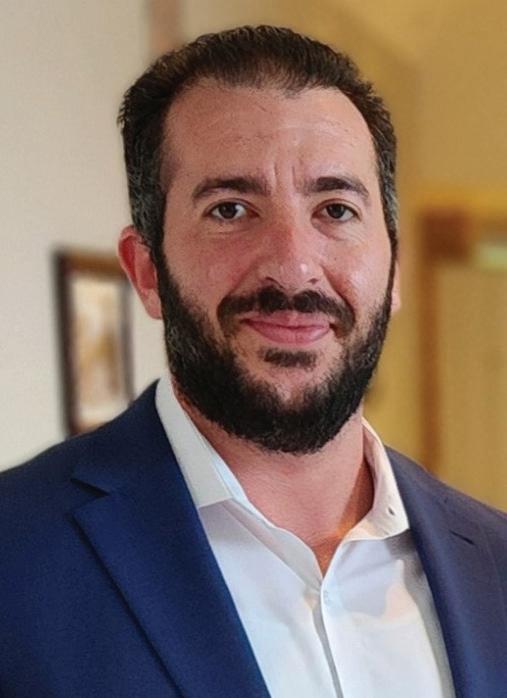
Norman said the Grand Traverse Resort is effectively limited from asking for more H-2B workers due to housing constraints, but he knows the demand is there.
“I can speak for other hoteliers that I’ve talked to, be it from Mackinac Island all the way down to Grand Rapids who use these programs, and there’s no doubt we would ask for more between us all if they were available,” he said.
There is at least one bill that was recently introduced in an effort to increase the cap. Aldrich, who has seen many similar bills die on the vine, isn’t holding his breath.
“There’s always talk of legislation going through and a lot of people do propose bills that just seem to go nowhere,” Aldrich says. “Nothing ever happens with the cap.”
Aldrich and King both believe the issue is a tough one from a political standpoint, due to the faulty misconception that H-2B workers will take American jobs.
Functionally speaking, the cap means not all requests can be filled. The government handles requests via lottery, meaning an uncomfortably degree of uncertainty year after year.
“The greatest challenge with the program is there’s no guarantee…that we will fill all our positions,” Norman said. “Even if you fill out all the documentation properly, do everything correct, it’s a massive unknown. You just don’t know what you will or won’t get. You follow the steps and you hope for the best.”
Compounding the problem is the fact that the government also isn’t great about informing employers about the status of their requests in a timely manner.
“Even right now, we still don’t know if we’re going to get all of our requested staff members for this season,” Norman said.
Over in Glen Arbor, Anderson was unimpressed – to say the least – at communication from the feds about his application process.
“Last year, we had people arriving and they gave us basically 48 hours’ notice,” he said. “It was like OK, you’ve been approved, they’ll be here in two days.”

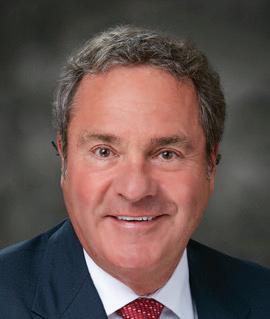









 By Craig Manning
By Craig Manning
Toll roads in Michigan; a new shortterm rental excise tax that could funnel more money back to local communities; a bill that would restrict boat speeds on Michigan water bodies; a piece of legislation that would prioritize in-state residents in the queue for state park campsites. These four ideas are all things that have generated discussion on the state level in the past two years, and all four have the potential to cause significant impact on Traverse City’s tourism-centric economy. Ahead of the 2024 summer tourism season, the TCBN takes a closer look at each of these proposals and what they could mean for the future.
The scoop: Experts say “Michigan roads are underfunded by $4 billion per year,” per a Bridge Michigan report, and that the state doesn’t have the money to make good on Gov. Gretchen Whitmer’s “fix the damn roads” pledge. Last year, feasibility and implementation studies commissioned by the Michigan Department
of Transportation (MDOT) showed that the state could make up at least $1 billion per year of that funding gap by converting nearly 1,200 miles of state highways into toll roads.
The scope: Currently 38 states have some form of toll roads, toll bridges, express lanes, or other toll facilities, per TollGuru.com. Michigan is technically one of them, but only because it charges tolls for use of its major bridges (like the Mackinac Bridge or the Ambassador Bridge) and tunnels (the Detroit-Windsor Tunnel). Unlike nearby states like Ohio and Illinois, Michigan does not have any toll highways. After analyzing all 31 Michigan highways, last year’s studies determined that 14 could feasibly become toll roads, including sizable segments of major thoroughfares like I-75, I-94 and I-96. The good news for northern Michiganders is that one of the area’s main entry points –US-131 – is not on the toll road list.
The status: “We haven’t followed that too closely,” said Trevor Tkach, president and CEO of Traverse City Tourism (TCT), when asked about the toll road issue. As Tkach notes, the state legislature has yet to develop any kind of bill based on last year’s feasibility and implementa-
tion studies.
“These conversations (around tolls in Michigan) have been going for more than a year, but that doesn’t mean they’ve gotten enough momentum,” he added. “We tend to pay more attention when things get to more of a fever pitch.”
The impact: While Tkach isn’t overly concerned about the toll road issue at the moment, he does think it could deter some traffic to northern Michigan – all without necessarily helping the state relieve its taxpayers of the road repair cost burden.
“I think part of the challenge is a lot of Michiganders travel inside of Michigan,” he said. “We’re a bit of a cul-de-sac, in that a lot of the people driving to destinations like Traverse City are people who live elsewhere in the state. So, us Michigan residents would probably be picking up the tab (for the road repairs) one way or another.”
The scoop: State Rep. Joey Andrews (D-St. Joseph) is pushing a 10-bill package that would create a variety of new mech-
anisms for local governments to regulate and benefit from short-term rentals in their communities. Andrews argues that the state’s lack of regulatory framework for STRs has led to a crisis where Michigan towns – particularly those along the lakeshore – are being overrun by Airbnbs.
“It’s long past time we put some reasonable guardrails in place to allow local governments to address STRs, respect the needs of permanent residents, and bolster our tourism economy,” Andrews states in support of his legislation.
The scope: The 10-bill package, which is tie-barred together, would effectively create a new “Short-Term Rental Regulation Act.” Perhaps the biggest impact of that legislation is that it would levy a 6% excise tax on all properties rented for 15 days or more each year, on top of the 6% use tax that already exists for STRs. The legislative package would also institute a $1 million liability insurance requirement for STRs, enshrine the ability for municipalities to limit how many STRs can operate in their jurisdictions, and direct the Michigan Department of Licensing and Regulatory Affairs to create a statewide database of STRs, including information like location, owner and emergency contact.
The status: The bill package headed to the House committee on Local Government and Municipal Finance in February after it was introduced. Speaking to Bridge Michigan in early May, Andrews said it was “still alive” after a few legislative hearings, but did not yet have the support to win a full House vote and that he did not expect the bill would see any real movement ahead of the 2024 summer tourism season.
The impact: According to a House Fiscal Agency review, a 6% STR excise tax could generate anywhere from $35 million to $75 million, with most of the money going back to the municipalities in which the STRs are located. Supporters of the legislation say it would help curb adverse effects of STRs, such as their impact on local housing markets, while also providing a stimulus for municipal budgets. Critics, including companies like Airbnb and VRBO, say the legislation would be bad for tourism, bad for homeowners who rely on rental revenues to pay their bills, and unfair in that it would actually require STR guests to pay higher taxes than they would for a hotel stay.
In the past, Tkach has pushed for Traverse City’s STRs to pay assessments to TCT, arguing that STR owners benefit from the work TCT does in promoting the region without paying their fair share. When asked about the new package of bills, though, Tkach says he agrees with
the STR companies, at least with regards to the excise tax.
“We haven’t supported (that proposed tax) because we believe it would tip the scales too far in the opposite direction,” Tkach said. “All we were ever looking to do is find balance, and make sure that anyone who’s working in the business of accommodations is following the same rules and regulations and paying the same taxes and assessments. This excise tax adds an additional 6% just to those doing STR business, and I don’t think that’s fair or justified. I understand that most municipalities want more money, but I don’t know if it’s fair to put so much extra burden on the STR market and those owners and guests.”
Despite his opposition to the excise tax, Tkach says he does see value in some of the items in Andrews’ bill package.
“We do support the idea of a statewide registry,” he said. “I think the registry would help provide a platform to support local governments, so that the burden wouldn’t be entirely on them to track down all of these businesses.”
The scoop: Introduced in February by State Rep. Julie Rogers (D-Kalamazoo), House Bill 5532 would significantly limit the ability of Michigan boaters to par-
You’ve sacrificed so much to build a successful business. Don’t risk losing it all because of someone else’s subpar performance.
With a focus on security, Safety Net offers fullservice IT management and custom IT solutions for organizations with 20-200 employees. You deserve an experienced IT partner who will protect what you’ve worked tirelessly to build.

ticipate in wake sports, particularly on inland lakes. Specifically, the bill would require watercraft in “wake sport mode” to be at least 500 feet from a shore or dock and at a water depth of 20 feet or more. Wake sport mode refers to boats operating with any form of wake-boosting features engaged – common for activities like wakeboarding and wake surfing. The bill has garnered bipartisan support from other Michigan lawmakers, including northern Michigan’s own John Roth (R-Interlochen).
The scope: Earlier this year, Vermont became the first state in the country to


adopt a significant wake boat rule. That law includes the same 500-foot shore buffer and 20-foot depth rule being proposed in Michigan. Here, the law would apply to both inland lakes and the Great Lakes, though it would be most impactful for smaller water bodies. The Michigan Lakes & Streams Association has endorsed the legislation, arguing that it recognizes “the impact that wakes from such vessels have on shoreline erosion, damage to shoreline structures, bottomland/vegetation degradation, and destruction of fisheries.”
The status: House Bill 5532 is currently awaiting a hearing from the House Nat-






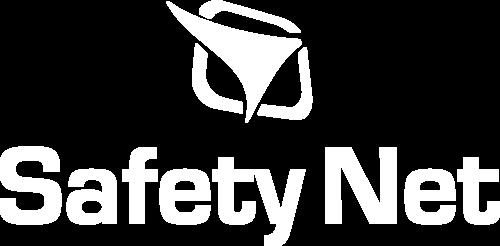
what you’ve created – and save
– with IT support from

ural Resources, Environment, Tourism, and Outdoor Recreation Committee.
The impact: Wake boat enthusiastsargue that House Bill 5532 is too restrictive and would cause significant harm to the recreational boating economy throughout the state.
“This bill will effectively kill most wake sports on all but the largest inland lakes,” one user wrote on the forums for MasterCraft, a popular wake and ski boat manufacturer. “Even Lake Erie…is quite shallow. I have to be over 1,000 feet from shore in many places to get to 15 feet (deep). This bill was clearly written by someone with no clue about the lakes in Michigan, or more likely someone looking to shut down all wake boat activity.”
Tkach says TCT will take more of a stance on the bill and its potential tourism implications if/when the legislation gains more momentum in the House. For now, he’s mostly concerned that the new rules won’t be legible to the average boater. Currently, state law – and boater safety classes – demand that boaters be 100 feet from any shoreline, dock, raft, moored or anchored vessel, or buoyed swimming area before traveling at a speed that creates a wake.
“500 feet is a lot tougher to judge than 100 feet,” Tkach said. “So, my initial reaction to this legislation is that I don’t know if the general consumer can actually understand what’s going on (with those proposed rules). It seems a bit over the top to me.”
The scoop: In March, State Rep. Cam Cavitt (R-Cheboygan) introduced House Bill 5597, which would give Michigan residents a two-week head-start in making state campground reservations each year. As things stand, Michigan’s state parks open up reservations for their campgrounds six months in advance. Cavitt has argued that slots book up too quickly, and that Michiganders should get first dibs on
reservations in the state where they live, work and pay taxes.
The scope: Per Cavitt’s office, one in three campsites in Michigan were already booked for the 2024 summer season by January 8 of this year.
“It’s great to see so many people interested in camping in Michigan,” Cavitt said in a statement. “But some of our most popular parks fill up so quickly that state residents have less than 20 minutes to get a spot before they’re gone. There should be perks to living in Michigan. People who pay taxes that contribute directly to the quality of the parks should be able to get first dibs in vacationing to those parks. Camping is supposed to be relaxing. Michigan families shouldn’t have to plan their vacations by huddling around a computer in December and praying for a nice campsite.”
The status: In March, Cavitt’s bill was referred to the Committee on Natural Resources, Environment, Tourism and Outdoor Recreation.
The impact: When asked whether he’s worried about the potential of House Bill 5597 to hinder out-of-state tourism, Cavitt has argued that his concerns lie with his in-state constituents and not out-of-state tourists.
For his part, Tkach says he isn’t worried about this piece of legislation hurting tourism, either.
“A lot of the campsite bookings in Michigan are by people in-state already, so I don’t know that this bill would change much,” he said. “And I’ll also say that the Traverse City and Interlochen state park campgrounds are always two of the most popular campgrounds in the entire state anyway. That’ll never change, no matter what they do with the rules.”
Indeed, the lion’s share of campground bookings in Michigan are already coming from Michiganders: Ron Olson, chief of the Michigan Department of Natural Resource’s parks and recreation division, recently told Bridge Michigan that state residents have accounted for 87% of state park campground reservations over the past five years.

At Nicolet Bank, we believe every great success story starts with a conversation. Look to your local, experienced commercial banking team, who work and live here, and understand our local economy is built on shared success.

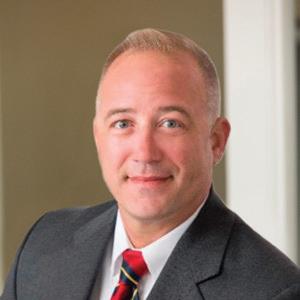
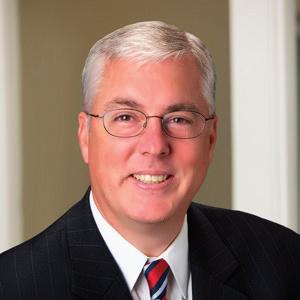
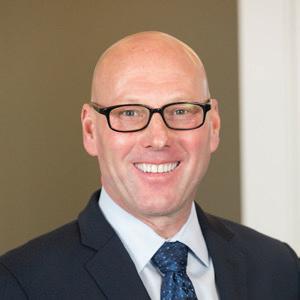
Michael Caruso
SVP Commercial Banking
231.941.6303
mcaruso@nicoletbank.com
John Galbraith
VP Commercial Banking
231.632.9331
jgalbraith@nicoletbank.com
Jeremy Harnish
SVP Commercial Banking Manager
231.941.6306
jharnish@nicoletbank.com
Andrew Sabatine
SVP Commercial Banking
231.941.6301
asabatine@nicoletbank.com

Whether they handed off icy concession treats or greeted travel-weary hotel guests, most people born and raised in northern Michigan’s coastal towns welcomed tourists as their first job.
For brother/sister duo Quinn and Alexandra Wuerfel, hospitality wasn’t just a fleeting introduction to the workforce, it’s been their family business since the 1970s.
That’s when their grandparents John and Leslye Wuerfel began developing and purchasing Traverse City hotel properties. Eventually John and Leslye passed the baton to their son, Josh, and his wife Tonya who are now president and VP, respectively, of Wuerfel Resorts, an LLC that has developed and managed more than a handful of hospitality staples throughout the area.
Three generations in, Quinn and Alexandra, two of Josh and Tonya’s kids, are stepping up and into leading roles at Wuerfel Resorts. The company portfolio currently includes Tamarack Lodge, adjacent event center Harbor Brook Hall, and the newly developed Alexandra Inn on East Bay.
Building 31’s resort retreats
Growing up, Quinn and Alexandra were surrounded by the NoMi hospitality and tourism scene.
“Some of my favorite childhood memo-
ries include playing catch with my siblings and the (Beach) Bums players before a game,” recalled Alexandra of her summers spent working at Wuerfel Park near Chums Corners. The 26-acre baseball stadium known these days as Turtle Creek Stadium was built by her grandparents in 2006 and run by the family for 12 years.
By the time Alexandra graduated from high school in 2015, she was getting ready to attend Cornell University’s school of hotel administration and working the night desk of the Beach Haus Resort. Owned and operated at the time by her parents, the Beach Haus is just a stone’s throw from several other Wuerfel properties including past developments Sugar Beach Resort and Grand Beach Resort.
In fact, look up and down either direction along U.S. 31’s East Bay end and sprinkled amongst the ice cream shops, souvenir stops, and Tripadvisor must-sees, are most of the hotels, resorts, and inns once owned or developed by the Wuerfel family. Even if it no longer carries the original name or facade, chances are that a Wuerfel broke ground or at least had some input in what’s there today.
“My grandpa (John) always says they were the first hotels to have color TVs in Traverse City,” said Alexandra of her family’s impact on the TC hospitality and tourism scene, which recently saw a major boost in numbers.
Traverse City Tourism reported an 11%
increase in visitors for 2022 compared to pre-pandemic statistics, translating to more than $423 million spent on lodging alone. It’s no surprise then that hundreds of new hotel rooms are going up throughout the county.
Born-and-raised northern Michiganders, the Wuerfels say that being locally raised and locally focused gives them an edge against national competition. As Alexandra points out, Wuerfel Resorts is fully independent, giving them the freedom to design and brand their properties to highlight the landscape and serene ambience of the area without franchise limitations.
With Wuerfel Resorts founders John and Leslye now retired and Josh and Tonya at the helm, they’ve niched down their active portfolio to just three properties and spent the last two years delegating to Alexandra and Quinn as the third generation of Wuerfel Resorts’ leadership.
As the general manager of Harbor Brook Hall, their beachfront event venue, Quinn says that studying hospitality at Michigan State helped prepare him for the role but also emphasizes the opportunities he had growing up in the industry.
“My family taught me from a young age the time commitment you need to (give) to a business and the versatility you need to
work the day-to-day operations,” he said. Meanwhile, Alexandra transitioned out of her role as an analyst for a Pennsylvania-based firm to take her place in the family business at the start of 2022.
She’s now Wuerfel Resorts’ director of operations and namesake of its latest resort development, a boutique hotel on TC’s East Bay called the Alexandra Inn.
“My parents actually purchased the domain thealexandrainn.com the year I was born,” said Alexandra of the four-story hotel that opened in June of 2023. “My dad is a bit proactive and every time he thinks of a good hotel name he purchases the domain…I think he has a list of over 50 domains and endless ideas for future projects.”
The 32-room, marine blue Alexandra Inn has been an all-hands-on-deck family project from the start.
After purchasing the East Bay beachfront property two and a half years ago, the Wuerfels set to work clearing the lot, which was originally residential, and worked alongside contractors to do everything from hanging walls to installing drywall. Alexandra and Tonya even designed the guest room furniture together before sending their sketches to a manufacturer in North Carolina.
“We wanted the property to feel almost like a renovated home turned Inn,” said Alexandra, who is on site every day to run operations.


Despite the concerns voiced by northern Michigan locals about obstructed bay views and increased summer traffic caused by the growing number of hotels along U.S. 31, the Wuerfels say that at the heart of their branding they’ve embraced not just the locale but locals too.
“We knew from the start of designing Alexandra Inn that we wanted the rooftop level to be an outdoor space for guests and locals to enjoy,” said Alexandra.
“It was a very long process to get us to where we are today,” she said.
After the inn’s site plan was approved in the spring of 2022, they were restricted by East Bay Township to only allowing Alexandra Inn guests to visit the restaurant.
“We fought tirelessly for 15 months to get Blush open to the public,” said Alexandra.
“We have a wonderful group of regulars from Holiday Hills, Acme, Elk Rapids and Rapid City,” she said, noting that last year Blush hosted everything from book clubs to adoption parties. This summer, they’re welcoming diners for live music and events along with a menu emphasizing NoMisourced brands and ingredients from places like Ebels and Traverse City Whiskey Co.
taneously growing the Wuerfel brand.
“I think one of the things that is fun to see coming full circle is that when Josh and I joined John and Leslye, we had ideas,” she said.

Ideas that included implementing unfamiliar technologies and fresh marketing strategies. “
That rooftop level is home to Traverse City’s only rooftop bar and restaurant, Blush, an endeavor that Alexandra admits became quite challenging.
Shortly after the hotel opened in the summer of 2023, the family finally received approval to open Blush to the public. Since then, Alexandra said that the restaurant has become a “strong place of community” for the East side.
As another season of festivals, fireworks, and bumper-to-bumper traffic swings into action, Tonya reflects on the next chapter of Wuerfel Resorts and the excitement her and Josh feel watching their kids grow into their new roles while simul-

And then we get to Alexandra and Quinn…(we’re) bringing in the next generation, and seeing things from a new perspective is just invaluable,” she said.
“It’s unlimited.
“And, we’ll see about that 4th generation eventually.”
design/build to construct a new, larger medical office that enhances patient experience, improves efficiency and meets HIPAA regulations.
Burdco didn’t cut corners.They always did quality work and actually went above and beyond. That gave me a lot of peace. I think Burdco, especially since Mike Brown is at the helm of this, really exudes character and quality in the facilities they build and stand by.


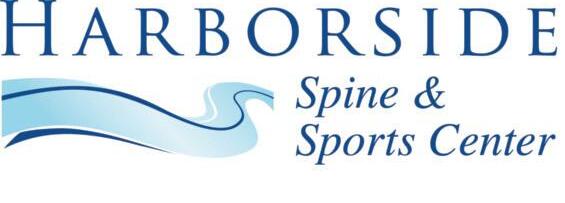
 By Craig Manning
By Craig Manning
Live in Traverse City long enough and the summer tourism cycle starts to seem like a well-established routine: the same festivals and events, the same gridlocked streets, the same hotels flashing “no vacancy” signs. Ten years ago, though, you might find that Traverse City and its tourism landscape has transformed to a surprising degree.
With another peak tourism season rolling in, the TCBN journeys back to 2014 to find out what has changed – and what’s stayed the same.
In 2014, the tourism scene started in a more combative place than normal. While there has long been a clash between those who see tourism as the core element of Traverse City’s economy and those who would rather keep the so called “fudgies” out of their backyard, 2014 was unique given the then-recent attempt by a 75-year-old TC resident named Lou Colombo to reserve the Open Space for the entirety of the summer.
Colombo’s move was a form of protest: His summer-long reservation would have been called “The Quiet Festival,” and would have kept the Open Space, well… open for locals to enjoy during the warmer months.
Of course, Colombo didn’t exactly get his way: The Traverse City Commission opted not to approve his stunt permit for The Quiet Festival, and events like the National Cherry Festival and the
Traverse City Film Festival ended up getting dibs on the Open Space for their usual engagements in early July and early August, respectively.
However, Colombo’s proposal did kick off a controversial conversation in town about “festival fatigue,” and about just how much major events should be allowed to monopolize Traverse City’s prime spaces during the summer months. Inspired in part by Colombo’s proposal, the city commission voted in December 2013 to reduce the maximum number of festivals that could take place at the Open Space each summer from six to four. The new policy also banned festivals at the Open Space on Memorial Day and Labor Day weekends.
Despite the headline-grabbing protest, and despite the new limit on festival permits for TC’s most desirable festival location, summer 2014 ended up being anything but a quiet time for local tourism. The Bayshore Marathon kicked off the season on Memorial Day weekend, drawing nearly 5,800 runners across its three main races – the 10K, half marathon and full marathon. The Bayshore’s numbers were only slightly higher nine years later, with 6,168 runners participating in those three races.
A big-as-ever version of the National Cherry Festival followed in July, kicking off on July 6 with a performance by the U.S. Navy Blue Angels and a Blues, Brews & BBQ festival at the Hagerty Center. Other highlights of the 88th Cherry Festival included musical performances from country star Justin Moore and a quadruple bill of ‘90s throwback bands – Sugar Ray, Smash Mouth, Blues Traveler and

“TCT is also prepared to support and partner with anyone who is willing and able to develop a new event for the future that will help sustain the visitor economy here in town. We’d love to have that conversation, because as we’re reflecting on 10 years ago, I would say there was far more interest and energy in the event space in 2014, and that has waned.”
–Trevor Tkach, President/CEO, Traverse City Tourism
Uncle Kracker – along with the typical parades, carnival rides and beer tent shenanigans.
One big milestone from the summer of 2014: The 10th annual Traverse City Film Festival, which spanned some 230 screenings of more than 200 different films, tal-
lying a reported 131,000 admissions along the way. That year of the festival included Open Space showings of beloved classics like Jaws, Star Wars, Jurassic Park and Casablanca, featured guests like Borat director Larry Charles, and even offered opportunities for film-goers to watch mov-
ies aboard a boat in the middle of Grand Traverse Bay.
The other festivals filling out the new four-event Open Space rule: Paella in the Park, hosted by the now-defunct Porterhouse Presents on August 15; and the Michigan Schooner Festival, a maritime-focused event held in September. The new rule forced the relocation of several TC events – such as the Epicurean-focused Taste of Traverse City festival, which swapped its Open Space berth from the year before for Grand Traverse Resort and Spa.
Outside of Traverse City proper, locals could catch other popular events such as the Interlochen Arts Festival (performers included Sheryl Crow, Gordon Lightfoot, Lynyrd Skynyrd, Bonnie Raitt, Nickel Creek, Darius Rucker, Jackson Brown, Willie Nelson, Five for Fighting, Ray LaMontagne, and Steely Dan) and Horse Shows by the Bay (which ran from July 2-27).
Looking ahead to summer 2024, can you spot the differences in the picture between now and 10 years ago?
Many of the starkest contrasts between 2024 and 2014 can be found by looking at the event calendar. While both the Bayshore Marathon and the National Cherry Festival hit snags this spring – the
former around a controversial per-participant fee increase from Peninsula Township, the latter in the form of a contentious debate with Cherry Capital Airport that threatened the future of the air show – both events are back this year in similar formats to 10 years ago.
Beyond those two flagships, many of Traverse City’s big celebrations and gatherings have shifted. Most notably, TCFF is no more – at least in the week-long summer festival format that marked its 10th incarnation back in 2014. Instead, festival founder and leader Michael Moore announced last year that TCFF would be rebranding as a yearround arthouse movie series called TCFF Tuesdays, which is currently in its second season at the Traverse City State Theatre. No major event has yet taken TCFF’s place during the prime end of July/beginning of August slot in the calendar.
Most of the other events mentioned above – Paella in the Park, the Michigan Schooner Festival, Taste of Traverse City – also didn’t make it to 2024, nor did other 2014 fixtures like the Traverse City Wine & Art Festival or the Traverse City Microbrew and Music Festival – headlined in 2014 by singer-songwriter Brandi Carlile.
Trevor Tkach, the current president and CEO of Traverse City Tourism (TCT) – and the executive director of the National Cherry Festival back in 2014 – points

to the loss of local events as one of the biggest contrasts between tourism 10 years ago and tourism now. The pandemic, he notes, dealt the region’s events sector a blow that it never fully recovered from. Add in the departure of events-organizing heavyweights like Porterhouse Presents, and there’s a yet-to-be-filled void in the local tourism ecosystem.
“Once we lost some of those events during COVID, it’s been near-impossible to bring them back online,” Tkach said. “You lost your business, you lost your customer base, you lost your volunteer base. So, we’re still recovering from that. And
then on top of that, it’s just been hard to find new people who are willing to put in the time and energy to produce events. It’s a lot of work. One of the few bigger event producers left in Traverse City, Troy Daily, I think has done a nice job of keeping his portfolio stable and even growing it. But on the whole, we’ve seen fewer independent entrepreneurs working in this space, and we don’t see the nonprofits as engaged in hosting events as they were 10 years ago.”
In fact, of the few new local events that have come online and become annual traditions in the past 10 years, TCT has

• The largest number of experienced and board certified surgeons with 13 surgeons, and a team of PAs and Physical Therapy providers focused solely on Orthopaedics
• We can get you in the same day with a single phone call when you get injured
• GLOC has served Northern Michigan for over 30 years
• No Urgent Care or ER deductibles at GLOC
• 2 locations to serve you

With premium technology, the best wakes and waves, and top notch reliability and quality... MasterCraft is pushing the boundaries to deliver moments that make life extraordinary. Find your families MasterCraft at Action Water Sports of Traverse City or shop online at actionwater.com.

been behind arguably the two biggest: the IRONMAN 70.3 Michigan in Frankfort and the International Fireworks Championship at Turtle Creek Stadium. TCT worked to bring the IRONMAN to Traverse City in 2019 – though the event moved to its new home in Frankfort after the pandemic. The International Fireworks Championship, meanwhile, drew strong reception during its inaugural 2023 event and will be back this September 6-7 with pyrotechnic teams competing from Australia, the United Kingdom, India, the Philippines, Finland and the United States.
“Our objective is to create something that’ll draw people from outside the market to get them to spend their dollars here, and hopefully spend the night,” Tkach said. “So, we’ve started creating our own events to do that. But TCT is also prepared to support and partner with anyone who is willing and able to develop a new event for the future that will help sustain the visitor economy here in town. We’d love to have that conversation, because as we’re reflecting on 10 years ago, I would say there was far more interest and energy in the event space in 2014, and that has waned.”
There is at least one local summer event that is exponentially bigger now than it was in 2014: Traverse City Horse Shows. What 10 years ago spanned just four weeks of competition in July has become a behemoth in the equestrian world that boasts a 13-week circuit of events and draws horses and riders from all over the world. This year’s festival kicks off with a June 5-9 series and concludes with a September 18-22 tournament of champions.
Beyond events, Tkach points to one other aspect of Traverse City’s tourism scene that has changed dramatically in the past 10 years: lodging. One of the area’s newest hotels in 2014 was the Cambria Suites on Munson Avenue, which had opened five years prior.
In the decade since, a slew of new hotels have sprung up and opened their doors: the Hotel Indigo in downtown Traverse City in 2016; the Tru by Hilton near
the Grand Traverse Mall and the Alexandra Inn in East Bay Township, both last year; the newly opened Avid hotel, also in East Bay Township. In addition, at least half a dozen other hotels are either under construction or in the development pipeline, including another downtown hotel from the developers that built the Indigo, a second hotel next door to the Tru by Hilton, and several other properties in East Bay Township.
The short-term rental (STR) industry has grown exponentially in the past 10 years. Back then, Tkach says, Traverse City’s STR landscape was mostly an informal system of homeowners who would rent their properties directly to visitors during Cherry Festival week. The rise of Airbnb and other platforms formalized the rental system and grew it dramatically, with Tkach now estimating that Grand Traverse County has some 2,000 STR listings during the peak summer travel season.
“Clearly, there’s way more inventory now,” Tkach said. “There are far more STR opportunities documented in Traverse City today than there were back then, and there are a few more hotels, too.”
This all leads us to the million-dollar question: Is tourism in northern Michigan significantly bigger in 2024 than it was 10 years ago?
“It’s a different world,” Tkach admitted. “Looking back at 2014, five years prior to that was when the Pure Michigan campaign was starting to kick off. And TCT had also recently shifted its local hotel assessment from 2% to 5%, which greatly increased the marketing budget. So even in 2014, we were starting to see the payoffs of multiple years of marketing. But it still wasn’t like it is now. I would say that, 10 years ago, there was still a lot of reliance on the Cherry Festival and TCFF to lead the way on local tourism. Those were significant peaks in our market. Now, I just see more consistent demand throughout the summer. The Cherry Festival still draws an immense amount of attention, but the summer as a whole is bigger.
From mid-June to about mid-August, it’s always busy.”


In terms of geographic borders, there is little overlap between Traverse City and Leelanau County. When it comes to northern Michigan’s local brand as a tourism destination, Traverse City and Leelanau County are deeply intertwined – and arguably becoming more so by the year.
Indeed, from Pure Michigan promotional campaigns that spotlight the Sleeping Bear Dunes National Lakeshore to endorsements from national publications that repeatedly call out Leelanau businesses like Farm Club or The Mill Glen Arbor, Leelanau County is increasingly looking like Traverse City’s ace in the hole when it comes to tourism branding.
Local tourism leaders see the relationship as a rising-tide-lifts-all-boats situation, arguing that visitors flocking to the region means traffic, dollars, jobs and increasing year-round economic viability for the entire region. Meanwhile, Leland Township Supervisor Susan Och told the TCBN there is a growing feeling among Leelanau residents that the county is “bearing the brunt of regional tourism” without getting either a seat at the table for local tourism planning, or a fair share
of the profits.
Leelanau’s stock as a tourism destination has been on the rise for years, particularly since Good Morning America dubbed Sleeping Bear Dunes as the “Most Beautiful Place in America” back in 2011. The park’s numbers have increased substantially since then. In the 2000s, the average annual visitor total for Sleeping Bear Dunes was 1,153,146. Fast-forward to now and the number has exceeded 1,500,000 visitors every year since 2015, including an all-time record of 1,722,955 visitors in 2021.
It’s not just Sleeping Bear Dune that’s seen its shine increase thanks to Leelanau’s steady trickle of national attention. In 2018, Time Money named Glen Arbor number four on its list of 20 best affordable places to visit around the world, highlighting Cherry Republic, Blu and nearby wineries as key draws.
In December 2022, when Conde Nast Traveler touted northern Michigan as one of its “23 best places to go in 2023,” Leelanau favorites like Farm Club, Dune Bird Winery and The Mill Glen Arbor were all name-checked. And in 2023, Leland landed on Travel and Leisure’s list of the 20 most beautiful small towns in America, while Wall Street Journalpraised
“(There’s a) strain that comes from being a day destination and having to provide parking, trash removal, public restrooms, public safety and so forth for day trippers who are attracted to this area by all of the hype.”
– Susan Och, township supervisor, Leland
Traverse City “and its bustling peninsulas” as “summer’s best beach vacation.” The latter feature recommended Leelanau spots like The Mill, the Village Cheese Shanty in Leland, and Suttons Bay’s Tandem Ciders and Poppy Things.
Between the press coverage and a recent string of milder-than-typical winters, Och says small Leelanau towns like Leland have seen a noticeable shift in

their patterns of tourism traffic. It used to be that Leland, Northport, Empire, Suttons Bay and other Leelanau towns would do bustling summertime business but then mostly go into hibernation during the winter.
Now, those towns are becoming yearround destinations, and, according to Och, it’s causing some growing pains. For instance, Leland’s only public restrooms

are located at the local harbor, and Och says they aren’t built for four-season operations.
“I’m amazed to go out in February and see people out hunting for Leland blue stones on the beach,” Och said. “That’s something you did not see 20 years ago. I think this climate disruption is changing people’s expectations of when they should visit and what’s going to be here when they get here. And because of that, we’re getting calls to keep the restrooms at the harbor open through the winter.”
Those calls have pushed Leland Township to explore options for expanding restroom access. In the immediate future, Och said, the township will be relying on portable toilets to fill the public restroom gap. Building a more permanent facility – or retrofitting the harbor restrooms for wintertime use – isn’t off the table, but Och says she thinks it might be “hard to justify” to taxpayers, given the expense.

tion where they are unfairly “bearing the brunt for regional tourism.” In the past few years, she’s clocked an increase in the amount of anti-tourism and anti-development sentiment from her constituents.
One recent example? A post on the Overheard in Leelanau Facebook community page, “where someone, maybe a bot, asks where everyone’s favorite beaches (in Leelanau County).”
“So perhaps Leelanau County, or even just Leland, could consider establishing an assessment district and partnering up with (Traverse City Tourism). I know that we would certainly welcome that, and I think then we could address some of these issues around infrastructure.”
Trevor Tkach, president and CEO, Traverse City Tourism
“It already seems like Leland Township taxpayers are paying for regional tourism in the form of these restrooms,” Och said. “Out of our $123,000 parks budget – which is for the entire township – we already spend $41,000 on maintenance of that one public restroom. I think it would be very difficult to get our taxpayers to support paying even more for a restroom that a lot of them might never use.”
Och says she is worried that all the growth is forcing Leelanau’s small towns and their taxpaying residents into a situa-
“Most of the people (in the comments to that post) are complaining that this is a person looking to write an article promoting our area, and they are not happy about it,” Och said.
Och says part of the challenge is that while Leelanau small towns are popular destinations, they don’t have much in the way of hotels. Plenty of visitors to the county stay in nearby short-term rentals, but many book hotel rooms in Traverse City and then plot day trips out to Leland or other Leelanau towns.
“(There’s a) strain that comes from being a day destination and having to provide parking, trash removal, public restrooms, public safety and so forth for day trippers who are attracted to this area by all of the hype,” Och said. “We can’t prove where these people are staying, but it does seem like Leelanau County destinations are being used to fill Traverse City hotel rooms.”
The tourism situation has left Och wondering: “When have we promoted this area enough?”
For his part, Trevor Tkach – president and CEO of Traverse City Tourism (TCT)

Great investment property
Zoned for short term rentals
Fully furnished and turnkey

Beautiful 1 BR, 1.5 BA Boardman Ridge Condo overlooking Boardman Lake, directly on the TART Trail. Walk or bike to beaches and downtown. Premier finishes throughout including stainless kitchen appliances. Includes extensive outdoor deck, one covered parking space, and flex room in basement.
$519,900 • 225 E Seventeeth St, #2-B • MLS# 1919564

MIKE ANNELIN
Enthusiastic & Experienced 231-499-4249 | 231-929-7900





Atlanta- ATL
Boston- BOS
Charlotte- CLT
Chicago- ORD
Dallas/Fort Worth- DFW
Denver- DEN
Detroit- DTW
Fort Lauderdale- FLL
Houston- IAH
Minneapolis- MSP
Newark- EWR
New Haven- HVN
New York-LaGuardia- LGA
Orlando/Sanford- SFB
Philadelphia- PHL
Phoenix/Mesa- AZA
Punta Gorda- PGD
Tampa/St. Pete- PIE
Washington DC-Dulles- IAD
Washington DC-Reagan- DCA




– sees Leelanau County as both an important asset and an important partner in his organization’s efforts to promote the northern Michigan region to visitors.
“Leelanau has definitely grown their collection of assets over the past many years, and they’ve done an especially phenomenal job of developing their wine region,” Tkach said. “And the average consumer doesn’t see borders. When you’re talking about coming to Traverse City from downstate or out of state, you’re not thinking just of Traverse City. You’re thinking more about the experience of coming north, and one of the great things about Traverse City is that it’s a wonderful hub-and-spoke experience. You’re going to have a nice centralized downtown space, but you’re also going to have outlying areas where you can go and explore a lot of really cool experiences. And Leelanau never disappoints on that front.”
Tkach also says it’s not easy to “turn on and off the faucet” of tourism marketing based on which areas feel like they have the bandwidth or infrastructure to manage the flow of visitors, and which ones don’t.
“You do your best job of telling stories about the region and trying to fit to what the market will bear, but it’s hard to match the marketing strategy of the entire region to the specific needs of each
smaller community,” he explained. “Especially when the alternative complaint, if desired visitor numbers aren’t met, the question typically becomes ‘Why aren’t you marketing more?’ We’re getting that feedback this year more than ever, because we just went through a very, very challenging winter. So, I don’t know that there’s a perfect number or a silver bullet.”
What Leelanau County could do, Tkach says, is get more involved with TCT as it plots out its approach for future tourism marketing. Right now, Leelanau is not a part of TCT’s assessment district, which means that most of the hotels that fund TCT’s existence – and that therefore have a voice in guiding its strategy – are not in Leelanau County. Instead, TCT is largely governed by the lodging properties in Grand Traverse County, though Benzie County also joined the organization’s fold back in 2020.
“They could establish a district,” Tkach said of Leelanau’s lodging properties. “I think if they were more organized in that way, we’d love to see that and I think we could provide even more support.”
Currently, Tkach notes, Leelanau has a single assessment district: the Sleeping Bear Dunes Visitors Bureau in Glen Arbor, which was formed by The Homestead, itself the county’s biggest resort hotel.
“Comparatively, in Grand Traverse

County and Benzie County, you have multiple fully established assessment districts which then feed into TCT,” he said.
Those partnerships mean pooled financial resources across the districts, as well as a shared “commitment from those who work in the travel and tourism space to come together and work together to solve issues or challenges.”
“So perhaps Leelanau County, or even just Leland, could consider establishing an assessment district and partnering up with TCT,” Tkach said. “I know that
we would certainly welcome that, and I think then we could address some of these issues around infrastructure. Right now, in Benzie County, we’re putting money into the Frankfort bathrooms down by the beach. That’s been a little bit of a challenge for them to figure out, but at the end of the day, there’s going to be a new resource in that community, partly because the tourism group there is partnered with us. So, I think there are more opportunities for Leelanau to take advantage of.”



Immaculate Waterfront Home! Spectacular Sunsets & Westerly Views Over Grand Traverse Bay! Custom Built Contemporary Home. Parcel is Elevated & Wooded to Ensure Privacy. Only Steps down to the Sandy Beach! This 3 BD - 2.5 BA Home Constructed in 2006 to be Maintenance Free. Features Include In-Floor Radiant Heat –Central AC – Whole House Generator – Whole Home Air Exchange - Main Level Living w/ Walkout Lower Level w/Views of Bay – Large Natural Fireplace – Chefs Kitchen – First Class Finishes/ Woodwork – Built In Hot-Tub/Huge Recreation Room/ Custom Wet Bar – Den could be Guest Rm - Screened In Porch – Oversized 3 Car Garage – etc. Virtual Tour Online. MLS# 1920907 $1,729,900.
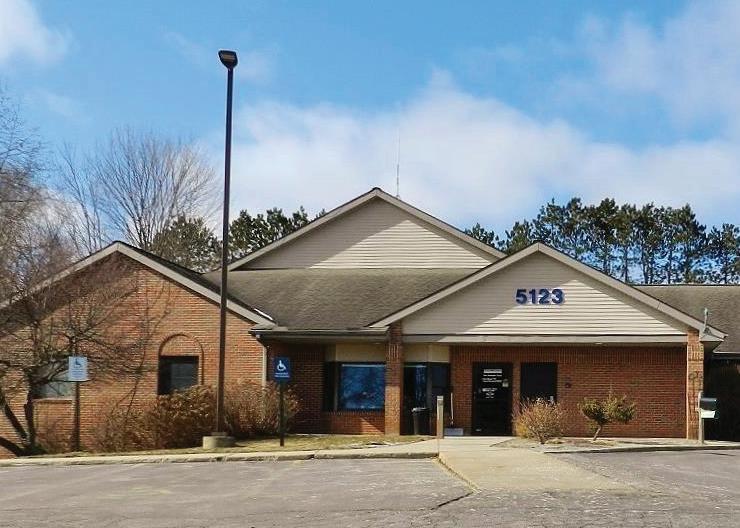
Medical Office Building For Sale! - 11,486 Sq/ Ft. Main Level is 6,187 Sq/Ft. Walkout Lower Level is 5,299 Sq/Ft and Features a Large Open Area w/ Picture Windows providing lots of natural light. Excellent for Physical Therapy, Patient Assessments, Gym Related Activities! Current tenant (month to month) is utilizing the lower level (some lab space), and approx. 2/3's of the main floor. The owner is using approx. 1/3 of the main floor & shared common areas. Owner leaseback is negotiable or buyer could use the entire building if needed. Many individual offices of various sizes. Close to Munson Hospital surrounded by a variety of Medical Practices. Virtual tour Online – MLS# 1919691 - $1,595,000.

RETAIL SPACE FOR LEASE! Large Picture Windows - High Ceilings - Wide Open Space Ready for New Tenant to Design it w/Personal Touches! Double Doors in the rear allow for Great Delivery Options. Appox 350 SQ FT of Upper Floor Storage Space. Busy Garfield Rd just South of Major Intersection w/Airport Rd. Lots of Traffic - Great Signage & Ingress/Egress for this Corner property. Front & Back Drives to Lots of Parking, & Easy Truck Access. Modified Gross Lease. Tenant to pay Rent, Electric, Nat Gas, Trash, Internet/Phone. Great Space for Retail, Insurance, Finance, Real Estate, Salon, etc. MLS# 1918610 $1600/month

Twelve banks serve the Grand Traverse region, but none of them are headquartered in Traverse City.
That could soon change.
Gregg Bigger, a former California banker and business executive who announced plans last year to start a new bank in Traverse City, has filed an application with the Federal Reserve Bank of Chicago to create a holding company that, if approved, would allow him to open Grand Traverse State Bank by around the end of the year.
Initially, the bank would be a loan production office, but plans to become a full-service bank in 2025. Grand Traverse State Bank would be headquartered in downtown Traverse City, the only bank based in the city.
“Things are going well, but it’s not an expeditious process,” he said.
Bigger filed an application with the Chicago Fed in April to create GTSB Financial Inc., a bank holding company that would acquire First State Bank of Decatur, a tiny Southwest Michigan bank with assets of $53 million. It’s the third-smallest bank in Michigan, according to iBanknet.com.
The transaction price would be roughly $13 million, including payment of a special dividend to First State Bank shareholders, according to GTSB Financial’s application.
Bigger, chairman and CEO of GTSB Financial, said he has raised more than $14 million in capital from more than 125 investors.
GTSB Financial would establish the Grand Traverse State Bank and another bank located in metro Detroit as subsidiaries with First State Bank of Decatur. Rob Farr, a veteran Oakland County banker who recently moved to Traverse City and is the president of GTSB Financial, calls the proposed Detroit-area bank “bank313” on his LinkedIn page.
Bigger says bank313 is a “concept” and has been testing the market in meetings with potential investors and customers.
Farr founded the Bank of Birmingham, which was acquired by the Bank of Ann Arbor in 2017. He then founded Mi BANK in Bloomfield Hills but left in November to join GTSB Financial. He moved to Traverse City in 2020 and commuted to Bloomfield Hills.
“I love to build things, particularly
banks,” Farr said. “The community bank is a great model.”
Farr said he met Bigger two years ago when Bigger was attempting to create Sovereign Bank, a de novo, or bank which has not been acquired through purchase and is newly chartered by the FDIC, that would have served Grand Traverse, Leelanau and Benzie counties.
But Bigger scrapped that plan when he learned that First State Bank of Decatur, founded in 1870 and said to be Michigan’s oldest bank, was up for sale.
“We pivoted to an acquisition,” he said, adding it was a less expensive way to get into the banking business and presented fewer barriers to entry than starting a bank from scratch.
Bigger has assembled a nine-member board of directors that includes Vice Chair Connie Deneweth, the former CEO of Traverse City State Bank, which was acquired by Independent Bank in 2018.
Deneweth says she was happily retired and wasn’t looking to get back into banking, but is worried that that the area has become increasingly dominated by big banks that “don’t understand the needs of small businesses.”
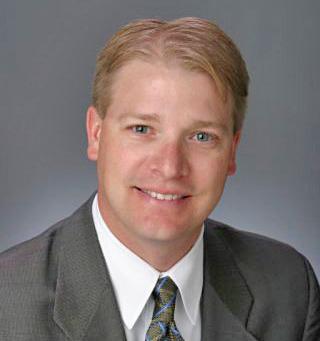
Large, mostly out-of-state banks control about 80% of bank deposits in Benzie, Grand Traverse, Kalkaska and Leelanau counties. None of the 12 banks serving the area are headquartered in Grand Traverse County. The only banks based in the region are Honor Bank and State Savings Bank, both of Benzie County.
Large banks tend to make loan decisions based on a credit scoring model, Deneweth says, with little regard for the “character and experience” of small business borrowers.
“Banks servicing small businesses are becoming fewer,” she said. “The future is collapsing for small businesses seeking banking alternatives.”
According to the Community Bankers of Michigan, there are 73 community banks in Michigan, down from 88 in 2019, as mergers and acquisitions have swept the banking industry.
Farr says a community bank generally is considered to have $1 billion or less in assets.
Bigger, an Owosso, Michigan native who with his wife moved to Traverse City from California two years ago, met Deneweth and other community leaders through Traverse Connect CEO Warren Call.
“Warren told him that if you’re doing anything in banking, you need to talk to Connie,” Deneweth said. “I went from helping to being on the board. Gregg is a heckuva smart guy. He’s innovative and has a can-do attitude.”
Bigger says Grand Traverse State Bank intends to specialize in commercial real estate loans and a variety of small business loans with a “private banking feel.” He said the bank will have “an extreme focus” on Small Business Administration and U.S. Department of Agriculture loans to wineries, farms and other small businesses.
One community banking consultant says the proposed Grand Traverse State Bank could face “significant headwinds” getting established in a highly competitive banking market.
Jim Perry, a Kalamazoo-based senior strategist at Market Insights, says Bigger’s bank will need to offer business customers a compelling reason to leave their existing banks, as well as capitalize on new business growth in the area.
“While there is always a degree of customer churn in retail banking relation -

ships, business customers tend to have deeper connections to their existing banks” than do individual customers, he says.
Bigger says one way he intends to capture business customers is by implementing a technology that will allow his bank to process loan applications faster than other banks in the market. Grand Traverse State Bank will be able to make decisions in as little as 48 hours on some loans of up to $1 million, he said.
And while some may see the Traverse City banking market as overbanked, Bigger disagrees.
“Every single bank in this community makes money,” he said, demonstrating to him that there’s room for his bank to cash in as well. “We see the data. We pick up 7-8% market share and we have a pretty good business in Traverse City.”
Farr, whose former community banks successfully compete against large metro Detroit financial institutions, concurs.
“Our theory is bigger banks like bigger customers, and that leaves us plenty of opportunity,” he said.
A new bank for Traverse City?
GTSB Financial Inc., which hopes to win approval from the Federal Reserve to open Grand Traverse State Bank by the end of the year, boasts a board of respected banking, business and community leaders. They are:
- Gregg Bigger, chairman and CEO GTSB Financial. Founded The Bank of Santa Barbara and is the former CEO of an energy technology company in Santa Barbara.
- Connie Deneweth, vice chair, former CEO of Traverse City State Bank.
- Rob Farr, president, founder of Bank of Birmingham and Mi BANK
- Mitch Blue, commercial risk advisor at Peterson McGregor Insurance.
- Dr. Nathan March, physician at West Front Primary Care.
- Steve Lang, retired life insurance executive and angel investor.
- Bryan Taggart, principal at the Larkin Group insurance agency.
- Kevin Bozung, founder of Safety Net, an IT services firm.
- Brad Niergarth CPA, senior partner at Dennis, Gartland and Niergarth.











How fortunes currently parked in money market funds could affect the broader market
By Craig Manning“Sitting on the sidelines.”
That’s how some financial experts have described the $6 trillion in cash that, reportedly, is currently sitting in money market accounts.
Thanks to spiking inflation and high interest rates, money market funds right now are offering investors an irresistible mix of strong yields and financial security. How long could this trend last, what’s the impact and opportunity cost of so much cash being kept out of the market, and what could the shockwaves look like if/
when investors decide to infuse all that dry powder back into stocks, bonds, or other assets? The TCBN took a look at the situation – and asked two local experts for their opinions – to get a clearer view.
In the thick of the pandemic, one of the measures the Federal Reserve used to keep the economy afloat was keeping interest rates low. According to Freddie Mac, for instance, the average 30-year fixed mortgage rate has never been lower than it was in January 2021, when it hit 2.65%.
As the world got back to normal and the economy rebounded, though, the Fed changed tack to combat inflation. Between March 2022 and July 2023, the Fed upped the federal funds rate on 11 separate occasions, equating to a total increase of 525 basis points. It was the fastest rate hike in decades.
The goal of those increases was to calm inflation, but they also had the effect of sending more investors toward cash strongholds.
Because of low interest rates, returns on money market funds were nearly nonexistent for most of the 2010s. According to the Crane 100 Money Fund Index – a measure of the average yield of the top 100 money market funds –the typical return for a money market account in 2010 was a meager 0.11%.
Last summer, though, the Crane 100 index spiked above 5% annual yield for
(PIMCO) “is double the average for the past 30 years.” For comparison’s sake, 10 years ago, the total amount of cash parked in money market funds was just $3 trillion; even five years ago, the number was only at $4 trillion.
In the eyes of investors, there are several perceived benefits of money market funds at this particular moment. First, in the wake of COVID-19, when market volatility lost a lot of investors a lot of money, cash investments have offered a perceived safe haven. Second, because interest rates are so high, the yields on cash sitting in the average money market fund are currently quite strong – espe -
pending on the size of that cut, it could put an end to this era of relatively high money market yields.
If money market funds do become less profitable, could that send a tidal wave of investors back to stocks or bonds? And if so, what kind of ramifications might that deluge have on the market? For his part, Eric Braund – the founder and CFO of Traverse City’s Black Walnut Wealth Management –doesn’t think there’s much to worry about.
“I don’t actually think we’ve seen money going out of the stock market and going into money markets during
“At the beginning of 2023, some of the bigger banks were not paying much at all in their savings accounts, whereas money markets were already close to 4%. So that was a really big difference. Now, the banks have kind of closed that gap and their rates are higher – not 5%, but now they’re paying 2-3% on a savings account or 5% on a CD. That wasn’t the case six months ago.”
– Eric Braund, founder and CFO, Black Walnut Wealth Management
cially relative to what has historically been normal for those types of accounts. Third, money market yields have actually been outpacing bond yields lately.
Combine these three factors and you get a historic high-water mark for money
the [recent rate increase] timeframe,” Braund said. “Instead, what we’ve primarily seen is a shift in cash from other places. When rates are really low, it doesn’t matter where you have your cash because it’s earning either not much or
of the recent money market craze has actually had less to do with investors “sitting on the sidelines” of the stock or bond markets and more to do with the struggles that have recently plagued certain American banks.
“Banks have to keep a certain reserve on hand, and when cash is shifting out of the bank very quickly, that puts pressure on the bank,” Braund explained. “And so we saw a lot of that last year. When the federal government was raising interest rates, there were actually some banks going under pretty quickly. I think that’s probably the biggest and most noticeable impact of federal government raising rates so substantially in such a short period of time.”
According to American Banker, 2023 ended up being “the biggest year ever for bank failures,” starting with the collapse of California’s Silicon Valley Bank in March. The banks that cratered reportedly had $548.7 billion in combined assets, bigger than the hit the banking industry took in other historically fraught years like 1984 and 2008. The banks that have survived, Braund thinks, understand that their services need to be competitive with money market funds.
“Banks have seen those cash reserves shifting, and they know they need to keep up with that, so they have raised their rates,” Braund said. “At the beginning of 2023, some of the bigger banks were not paying much at all in their savings accounts, whereas money markets were already close to 4%. So





investors, there’s reason to think the Fed could reverse course sooner rather than later. According to CNBC, traders “appear increasingly confident that the Fed could start cutting interest rates as early as September, after inflation data cooled more than expected in April.”
While not all experts are convinced, the thought of light at the end of the tunnel begs the question: When rates do drop, what will that mean for all the investors hoarding their cash in money market funds?
“When interest rates fall, investors often seek higher-yield alternatives to money market funds,” said Dawn Hemming, president of hemming& Wealth Management, pointing to four types of investments that could see a lot more love in the near future, pending an interest rate cut: bond funds, dividend-paying stocks, real estate investment trusts (REITs), and high-yield savings accounts.
As for the impact of a large-scale migration of money market dollars back
out into the market, Hemming foresees a variety of potential outcomes.
“More cash in the market can drive up demand for investments, potentially boosting asset prices,” Hemming said. “Increased demand for bonds could lead to lower bond yields, affecting borrowing costs for governments and corporations. If the infusion leads to excess liquidity, it could fuel inflationary pressures over time. And sudden influxes of cash can also cause shortterm market volatility as investors adjust their positions. Overall, while injecting cash into the market can stimulate economic activity, it also poses risks such as inflation and asset bubbles.”
Again, Braund is confident that most of the people who bet big on money market funds in 2023 will either keep their cash in those accounts or move it back into traditional savings accounts, thereby precluding any major market upheavals. Often, he said, the investors who have sizable cash investments do so “for a specific need or for emergency

reserve” – a need that won’t change just because interest rates go back down.
“If a client has short-term cash needs and their reserves are cash, then they’re simply shifting from bank savings to money market funds or back,” Braund said. “There’s really no big change at all in that situation, because the money needs to remain in cash for those individuals. They’re either going to be spending it in a very short period of time for a particular reason, or they have that money set aside as an emergency reserve. So, I really don’t see all these funds shifting out of money market accounts and into the stock market.”
If there’s a caveat, Braund said, it’s that some particularly gun-shy investors have been keeping their assets in cash more or less since the start of the pandemic. Those individuals, he assured, are the minority: Most individuals burned by the early pandemic crashes have since re-engaged with the market, thanks to strong performance and high yields in that space. In fact, according

to the investing website Visual Capitalist, the S&P 500 Index saw a return of 24.2% in 2023, far outstripping the 5.2% yield of money market/cash investments. Those healthy stock market yields have already had some financial experts warning cautious investors that they’re weathering a big opportunity cost by keeping their assets in cash. Depending on how many cautious investors are still waiting for the Fed to drop interest rates before diving back into the market, Braund said that group could indeed make a splash.
“For our clients, we recommend ‘time in, not timing,’ but we know there are also people who maybe sold their stocks during COVID, and their money has been in cash for several years, and now they’re wondering what to do with it,” Braund said. “So, those aren’t our clients, but there are people out there who are potentially doing that.” “We’re scrambling to update our clients with the latest information because it’s a moving target.”

Something didn’t sit right with Noah Windbacher.
Windbacher, a treasury management officer with West Shore Bank, was in the process of adding a signer to a client’s account at the client’s request not long ago.
He initially received the request by email from the client’s controller, and as a matter of security, he called the client to confirm they actually needed someone added.
But even after this phone call, in which a client representative confirmed they needed someone added, Windbacher’s gut told him something was off. For one thing, the controller seemed unusually pushy about getting the new signer added as soon as possible.
So before he pulled the trigger, Windbacher decided to call the client back one more time. It was then he found out that while the client did indeed need someone added, the person they wanted added was not the same as in the email request. The entire thing was a scam.
The scammers hacked into the client’s email system and were sending emails from the controller’s actual email account, and they were one Windbacher call away from striking gold.
“This was in the works. It was happening. And it could have been hundreds of thousands of dollars in an instant,” said Sid Van Slyke, West Shore’s senior vice president. “Dang near everybody would have stopped after that first phone call, but we’re sure glad Noah didn’t.”
Across the region, banks, credit unions and other financial institutions are shoring up their cybersecurity efforts. And while there’s substantial risk from hackers who attack mainframes and other systems directly, experts say the most prevalent risk is scammers who are doing an increasingly amazing job of mimicking legitimate business contacts. Once they fool unsuspecting bank employees, the damage can be immense.
“In something like three quarters of the cybersecurity breaches, there’s some human element,” said Norm Plumstead,
president of Honor Bank. “Someone clicked on the wrong link, or they got tricked through a phone call or email.”
‘We have to be perfect.’
Van Slyke is haunted by something his in-house IT team made him realize after the situation with Windbacher. These scammers send millions of emails to thousands of targets, hoping one or two will bite. Even a low success rate could mean big bucks for the bad guys, he says. But on the other side of the coin, even a 95% success rate is simply not good enough.
“When they send an email like that, they only need to be right once; to have it work just one time,” he said. “But for us, we have to be right every single time. We have to be perfect.”
It’s a serious enough risk to warrant the management team’s continued, unbroken attention.
“Cybersecurity is top of mind every day. Whether it’s testing, whether it’s troubleshooting, adding programs, it’s being discussed every single day,” Van Slyke said.
As this risk only continues to increase – and as employees are singled out as the most vulnerable point of attack – banks are spending a ton of time investing in training, educating and testing those employees. At West Shore, which has 10 branches from Ludington to Traverse City, the in-house information technology team is regularly trying to scam its own employees with a variety of bogus requests – a move that tests its own security while training employees to keep a sharper eye.
“Our IT team constantly runs test scam emails internally that we see multiple times a week. They are so good, and they look so legitimate,” Van Slyke said. “It really requires the person logged in, the user, to stop on every single email and think.”
At Honor Bank, a community bank with eight branches from Bear Lake to Traverse City, the leadership team has put a “tremendous amount of time and energy” into cybersecurity in general, Plumstead says. And while they and their third-party contractors

“Cybersecurity is top of mind every day. Whether it’s testing, whether it’s troubleshooting, adding programs, it’s being discussed every single day.”
– Sid Van Slyke, Senior Vice President, West Shore Bankare constantly “hardening the systems” by tweaking firewalls and other protections, arguably the biggest focus is getting employees ready for these threats.
“We can have the most advanced or extensive systems in the world, but at the end of the day, it takes just one person clicking on a wrong link to get us into big trouble,” he said. “It’s a very high-priority item.”
The key message? It is always better to be safe than sorry.
“Anything can wait. Read the email closely, is it really that person?” said Ming Mays, director of information technology at TBA Credit Union. “Do you need to contact that person to make sure it’s really legitimate?”
The pressure, of course, is significant. It’s an arms race of sorts, with one side working to outpace the other. And this isn’t about getting access to a photo gallery or obtaining the passwords to a streaming account. Hundreds of millions of dollars are potentially at risk, raising the stakes to dizzying heights.
“We have four full-time IT guys, and
they will tell you they can’t come close to keeping up with the speed of the guys on the other side. I mean, you’ve got a million bad guys out there working on this,” Van Slyke said. “As fast as we solve for these things by finding software or coding that’s going to protect us from a certain threat, they’re already creating the next threat.”
West Shore’s IT team therefore has a steady diet of regular, ongoing training, Van Slyke says, and is expected to keep an eye on things round the clock.
“They’re constantly at conferences, constantly connecting with our third-party vendors learning the latest and greatest. Once a week at least, someone is staying until midnight to download some new update…this is literally 24 hours a day.”
Over at TBA Credit Union, Mays started in 2019 and has rapidly increased her staff as that institution has put a stronger focus on security. Management there has recognized not only the importance of this work, but how labor-intensive it can be.
“Cybersecurity is ongoing; you really never stop doing it,” Mays said. “This requires 24/7 monitoring…and it’s 24/7 learning, too.”

All of this work is, of course, a balancing act. Banks and clients want security, but they also want fast, efficient service and systems that aren’t overly bogged down or inefficient because of that security (think: those important emails you didn’t get because they were caught by the system’s filters).
“I often have to decide how much risk we’re willing to take while still providing the convenience that everybody wants,” Mays said. “We have to make really educated decisions.”
Because a compromised client can lead to problems for the bank itself –and because many local, community banks pride themselves on the highest levels of customer service possible –they’re also working hard to protect clients from getting hoodwinked.
COVID and the years after drove a huge explosion in online transactions, financial and otherwise. And as people have gotten used to doing more and

more without ever interfacing with a real person, otherwise discerning folks have fallen prey to scams at a much higher clip.
“We’re all used to the elder abuse situations where somebody gains access to grandma’s online banking and does some bad things, but it’s not just that anymore. Title companies, law firms, you name it…are ending up scammed,” Van Slyke said. “And these are places that are not only working with a bank that’s spending millions of dollars in
cybersecurity, but they have their own checks and balances as well. That’s how good these guys are getting.”
Continuous, in-your-face reminders of what banks will never ask for is part of the defense.
“We say over and over and over and over again that we will never ask you for the last four digits of your social security number,” said Van Slyke. “We will never ask you to click on a link to transfer funds that have been held.”



Tomorrow is on.
The Great Lakes are a vital source of water, life and play for all of Michigan. That’s why we’re committed to their safety and environmental protection. With the Great Lakes Tunnel Project we're taking extra precautions in the Straits, making a safe pipeline even safer. Placing Line 5 within the Great Lakes Tunnel will eliminate any risk of an anchor strike.
While the tunnel is being built, we’ve added additional safety measures—including hi-def cameras and a marine monitoring/alert system—at our 24/7 Maritimes Operation Center. Safety in the Straits is our top priority. We’re committed to keeping the Great Lakes safe for generations to come.
Learn more at enbridge.com/line5tunnel.
 By
By
As a CPA with years of experience working with various businesses, I often get asked about the relevance of GAAP – Generally Accepted Accounting Principles – in today’s financial landscape. So, is GAAP dead? Not quite, but its applicability across all businesses is declining. Let’s explore whether GAAP is right for your business and discuss some alternatives that might be more suitable and cost-effective.
First, GAAP has been the cornerstone of financial reporting in the U.S. for decades. It ensures consistency, reliability, and transparency in financial statements. It is a framework that businesses that adhere to GAAP must follow when presenting financial information. It is how those uninvolved with the day-to-day operations of a company can trust management when they report their financial results. This is also how you know one business presents financial information using the same method. However, given the changes in the business environment, complexity, cost of compliance, and the rise of international standards like IFRS (International Financial Reporting Standards), it’s natural to question GAAP’s ongoing relevance.
For some businesses, mainly publicly traded companies, GAAP compliance is mandatory. Investors and regulators expect GAAP-compliant financial statements to ensure they can compare apples to apples across different companies. For other businesses, your lender may require GAAP to ensure they can rely upon the information provided. However, if you run a privately-held small- or medium-sized business, GAAP might not always be necessary. Implementing GAAP can be complex and costly. The standards are detailed and rigorous, requiring a significant investment in time and resources. Unfortunately, standardization also means that all businesses must follow the same regulations regardless of size. Thus, a small local business following GAAP must follow the same requirements as the multinational billion-dollar corporate conglomerate. For many smaller companies, the benefits of GAAP compliance don’t always out-

right fit for your business?
weigh these costs. This brings us to the crucial question: Is GAAP the right fit for your business?
As a business, if your lender, investors, or other outside source requires GAAP, this may be the only option. This is often the case when outside stakeholders aren’t active in management and need to rely on reporting standards to ensure they are being presented with accurate information – even if that comes at a higher complexity and cost.
Not for profits that have achieved certain thresholds of public funding through solicitations or federal grants must follow GAAP and obtain certain levels of assurance to ensure that the public interests are met.
Another reason to consider GAAP is if your business is seeking to be sold or acquired in the near future. Often, acquiring entities will require GAAP statements, as the financial information is the underlying basis for many business transactions. If not required, the buyer may place a premium on the business sale due to the increased reliability of the underlying financial information.
However, GAAP isn’t the only source of consistent and reliable standards. If GAAP compliance seems overly burdensome, don’t hesitate to explore other options. We have noted on many occasions that third parties don’t fully understand the complexity of GAAP accounting and reporting and rely upon boilerplate loan covenants that impose the requirements when alternative reporting may have been perfectly acceptable. There are more straightforward yet still valid frameworks that can provide clarity and insight into your financial health without the complexity and cost of GAAP.
• Modified Cash Basis: This approach combines elements of cash basis and accrual accounting, offering simplicity while capturing a fuller picture of your financial position.
• Tax Basis: Aligns your financial reporting with tax return preparation, potentially reducing complexity and cost. This can be especially useful for small businesses with straightforward financial situations.
Equally important as asking if GAAP is appropriate for your business is asking the level of third-party assurance that is placed on the financial statements. This is where a third-party Certified Public Accountant comes in. As part of reporting, the respective stakeholders engage the CPA to perform various levels of testing and procedures to provide a level of assurance that can be placed on the financial statements ensuring that GAAP has been appropriately applied.
Before making a decision, it’s essential to understand the different levels of financial statement services and how they relate to GAAP:
Audit: An audit is the most comprehensive level of financial statement scrutiny. An independent auditor examines your financial records and provides an opinion on whether your financial statements are free of material misstatements and comply with GAAP. Audits are often required by banks, investors, or regulatory bodies. They provide the highest level of assurance but are also the most costly and time-consuming.
Review: A review is less extensive than an audit. The accountant performs analytical procedures and inquiries to provide limited assurance that no material modifications are needed for the financial statements to conform to GAAP. Reviews are less expensive than audits and can be
an excellent middle ground for businesses that need some assurance but don’t require a full audit.
Compilation: A compilation involves preparing financial statements based on information provided by management without offering any assurance. It’s the least expensive and least formal option, suitable for internal use or businesses that don’t need extensive external validation of their financial statements.
If you’re currently following GAAP and assuming you need an audit, it’s essential to question whether it makes sense for your business regularly. Discuss with your accountant why GAAP is being used and if it aligns with your business needs. It might be time to reconsider if you are active in your company without needing to report to third-party stakeholders or if the answer is primarily historical or for perceived prestige.
While GAAP is far from dead – as it provides an essential framework for the public to rely upon for certain businesses (such as publicly traded businesses) – its applicability to all businesses is not a given. You can make a more informed decision by understanding your specific needs and the alternatives available. Whether you stick with GAAP or opt for an alternative methodology, the key is to ensure your financial reporting framework supports you and your business’s success without unnecessary complexity and cost.
Jon Sluis, CPA, is president of Intrust CPA in Traverse City. With a background in public accounting and private industry, he has more than 20 years in the industry. Specific areas of expertise include federal taxation, financial accounting and reporting, long-range strategic planning, and entity structuring. For more information, call (231) 935-1590 or visit www. intrustcpa.us.
 By Anders Gillis, columnist
By Anders Gillis, columnist
The recent announcement from the Federal Trade Commission (FTC) on its new rule banning noncompete agreements has sent ripples through the business community. Noncompetes, which prevent employees from taking jobs with competitors after leaving, are being largely banned by the FTC. While this might sound like a potential headache for employers, there are some silver linings for business owners. Let’s break down what this means for your business and how you can adapt.
The FTC believes noncompete agreements limit employee mobility and stifle competition in the job market. In simple terms, the FTC thinks these agreements can trap employees in jobs that fail to pay fair wages. By restricting employee options, the FTC argues, noncompete agreements hold down wages and innovation. It’s tough to negotiate a higher salary if your company knows you cannot seriously consider offers from a competitor or launch your own company.
What does the rule say?
The FTC’s rule effectively ends noncompete agreements for most private-sector employees, regardless of position or industry. There are a few potential exceptions, and some wrinkles, like an exception for current “senior executives,” but for the vast majority of your team, noncompete agreements are likely on their way out the door.
Hold on, there might be a delay
Here’s the thing: There will be challenges to this rule, and nobody knows how it will shake out. The noncompete ban is a significant change; already two cases have been filed in Texas. There’s a good chance a federal court will issue a nationwide injunction delaying or stopping the new rule’s implementation. I predict the effective date of the noncompete ban, Sept. 4, 2024, will be delayed while the courts weigh in. I expect this one to go to the U.S. Supreme Court.
The good, the bad and the actionable
Let’s be honest: this news might initially sound unsettling if you’re a business owner. You’re probably worried about

employees leaving and taking their skills (and your trade secrets). But here’s the good news:
• Confidentiality and trade secrets are still protected: The new rule doesn’t allow employees to take confidential information or trade secrets. No employee, no matter what happens with the rule, has the right to take trade secrets, customer lists, marketing information, or other valuable information with them on the way out the door. The most common way you’ll see that data stolen is through email or uploaded into the cloud. Now is an excellent time to brush up on your confidentiality policies and agreements to ensure you are well-protected if your employees leave. You also need to make sure you have the right kinds of practices in place to detect and stop this kind of nonsense.
• Nonsolicitation agreements can still help: To the surprise of many, the FTC’s noncompete rule did not outright ban all nonsolicitation agreements. Unlike noncompete agreements, which prevent employees from working for a competitor or in an industry, nonsolicitation agreements restrict employees from soliciting clients or colleagues for a set period after leaving. The new FTC rule doesn’t approve all nonsolicitation agreements, but it does leave the door open for enforcement of narrowly tailored nonsolicitation agreements. The FTC will scrutinize nonsolicitation agreements to make sure they’re appropriate, focus on protecting legitimate business interests and are not just disguised as noncompetes posing as nonsolicitation agreements.
Action steps for your business:
There’s a lot of uncertainty right now. It can be overwhelming. But here is what I encourage businesses to consider between now and Sept. 4, 2024:
• Review existing noncompetes: Re-
view your current noncompete agreements with your legal counsel. If you have an overbroad and unfair noncompete agreement, get rid of it. Even if the FTC rule is struck down, you don’t need it, and it’s only damaging your relationship with your employees and credibility with the courts. If you work in an industry with significant trade secrets, proprietary information, or confidential information, or you have senior employees with noncompetes, you don’t need to rush anything just yet. For those situations, it’s okay to take a waitand-see approach to determine how the legal challenges to the FTC’s rule play out before deciding on your next steps. But for many employees, it’s time to do the right things and void their noncompetes.
• Focus on crafting fair nonsolicitation agreements: If you still think you need protections, consult with an attorney to draft nonsolicitation agreements that stand a chance of complying with the FTC’s new rule. These agreements should focus on protecting your legitimate business interests, such as client relationships developed during employment and customer lists. As a bonus, a well-written nonsolicitation agreement will stand a better chance of being enforced than an overbroad noncompete, no matter what happens with the FTC’s rule. In drafting a nonsolicitation agreement with your attorney, your goal should be to prevent unfair competition – not competition, period.
• Develop strong confidentiality policies and practices: You can no longer count on a noncompete to prevent your trade secrets from ending up in the hands of your competition. As mentioned above, it’s never okay for an employee to take confidential information. But you don’t want to be the company that marches into court with no written confidentiality policies, practices or agreements. You’re much
better off having a clear set of policies or agreements on confidential information and demonstrable practices on how you protect your data. You might consider having employees execute a well-drafted nondisclosure agreement. Keep in mind you can’t claim something’s a “trade secret” if it’s on your website or floating around in your marketing materials.
This new rule is disruptive, but it’s also an opportunity for a positive shift in the workplace. Noncompete terms have often been abusive and overbroad. Even if it’s struck down, the FTC’s rule has started a conversation among employees. It’s time for companies to have that conversation, too. Will there always be a place for noncompetes in certain contexts, positions, and industries? Yes, I think so. But likely gone are the days of ubiquitous noncompetes. And thankfully so. The guy making your sandwich or cleaning your bathroom should not have a noncompete. But in America in 2024, he sometimes does. If you don’t need an employee held to a noncompete, it’s time to get rid of it. If you think you do, pay close attention to the legal challenges to the FTC’s noncompete ban and the exceptions in the rule and get ready to swiftly react on Sept. 4, 2024. And if you know you need some protections, but you sense a noncompete is a stretch, sit down with your attorney and IT team and get to work on revised nonsolicitation terms, confidentiality policies and trade secret protections to make sure that when your employees do leave your trade secrets and customer lists don’t go with them, only to leave you with an uncertain or weak legal claim.
Anders Gillis is a labor and employment attorney at Parker Harvey PLC. He can be reached at (231)486-4507; agillis@parkerharvey.








 By Kevin Bozung, columnist
By Kevin Bozung, columnist
Bank fraud is a type of cyber-enabled crime that involves unauthorized or fraudulent transfers of funds using the automated clearing house (ACH) network or paper checks. Bank fraud can affect both consumers and businesses, but businesses are especially vulnerable because they often deal with larger amounts of money and have more complex payment processes. Bank fraud can result in significant financial losses, reputational damage and legal liability for businesses.
How does bank fraud happen?
One of the most common ways that ACH fraud happens is through phishing or spoofing attacks, where hackers impersonate a legitimate vendor, supplier or partner and request a change in the payment details, such as the bank account or routing number. The hackers may use the vendor’s actual email account, which they have compromised, or create a fake domain name that looks similar to the real one, with a changed letter or two. The unsuspecting employee who handles the payment may not notice the difference and approve the change, sending the money to the hacker’s account instead of the vendor’s.
Check fraud can happen when a check is stolen or forged and cashed. The fraudster may also alter the amount or the payee on a legitimate check and cash it for a higher amount or in their own name.
How can you detect and prevent bank fraud?
There are several cyber security best practices that you can implement to protect your business from bank fraud, such as:
Security awareness training: Educate your employees, especially those who are in charge of financial transactions, about the risks and signs of bank fraud. They need to be extra careful about validating websites and email addresses to ensure they are legit. They should also be aware of the common phishing techniques and how to avoid them. You can also conduct scheduled recurring phish testing to identify individuals who

are prone to being fooled and provide them with additional training.
Phone verification: Always verify a change in payment details via phone call to a known contact at the vendor’s company. Do not rely on email or text messages alone, as they can be easily spoofed or hacked. Confirm the bank account and routing number with the vendor before sending any money.
MFA on everything : Enable multi-factor authentication (MFA) on all your online accounts, especially your bank web portal and your email system, such as Office365 or G-Suite. MFA adds an extra layer of security by requiring a second factor, such as a code sent to your phone or a biometric scan, to access your account. This makes it harder for hackers to break into your account even if they have your password.
Positive pay: Ask your banking professional about Positive Pay, a service that allows you to monitor and approve the checks that are issued by your business. Positive Pay helps you prevent fraud on paper checks, which can also happen when hackers steal or forge your checks and cash them.
Transaction limits: Work with your bank to set reasonable limits on your ACH transactions, such as the individual transaction amount, the daily or monthly total amount, and the number of trans-
actions per day or month. You can also review the transactions by user ID or employee and identify any unusual or suspicious activity.
Second approval: Consider implementing a standard policy to have a second set of eyes on transactions over a certain size. You can assign a senior manager or a trusted colleague to review and approve any large or unusual payments before they are processed. This can help you catch any errors or fraud attempts before they cause any damage.
Cyber liability insurance: Maintain a cyber liability insurance policy that covers your exposure to bank fraud and other cyber risks. Cyber liability insurance can help you recover from the financial and legal consequences of a cyber attack, such as the loss of funds, the cost of investigation, the liability claims and the reputational harm.
Anti-spoofing technologies: Ensure that your IT organization or vendor has applied the latest anti-spoofing technologies to your email system, such as DMARC and SPF records. These are protocols that help you authenticate the sender of an email and prevent hackers from spoofing your domain name or email address.
Bank fraud is a serious threat to your business that can result in significant losses and damages. However, by following the
cyber security best practices outlined in this article, you can reduce your risk and protect your business from bank fraud. Remember, prevention is better than cure, and detection is better than loss.
• Unauthorized or fraudulent ACH transactions are considered cyber-enabled crimes
• Regularly provide cybersecurity awareness training for your entire staff, with additional training for those involved in financial transactions
• Implement policies like phone verification, secondary approval and transaction limits to reduce the risk of bank fraud
• Implement MFA on everything – not just banking related logins – for enhanced protection
Kevin Bozung is the co-founder and president of Safety Net, an award-winning IT managed service provider established in 2003. Kevin also serves as a director of Grand Traverse State Bank. Safety Net provides IT consulting, security and support for businesses with 20-200 employees throughout northern Michigan and metro Detroit. Microsoft Co-Pilot assisted in the writing of this article – look for an upcoming opportunity to learn how AI can help your business: safetynet-inc.com/events








 By Delaney Keating, columnist
By Delaney Keating, columnist
Networking gets a bad rap. While it may come easy for some, for others it evokes social anxiety and often sounds like a dry, workday affair. No matter how we slice it, whether we are extroverted, introverted, or anything in between, networking remains an essential means of navigating the world. At its core, networking is about making meaningful connections.
In its most basic definition, networking is about finding and sharing value through connection. The world is inescapably relational and our connection to others is part of being human. And that’s the point –human networks add immense value to the things most important to us, shaping our careers, environments and daily lives.
No matter what our business is, we are in the human business. Whether launching an innovation, designing a social cause, or expanding our careers, we are likely networking to pursue our mission. Remember, we’re never alone in this journey; we’re all navigating the intricacies of networking, each in our unique way.
So, how do we remove the “work vibe” and overcome our social anxieties when networking to make it more accessible and enjoyable?
First, be clear about what you need from each networking opportunity. Networks serve varied purposes, and going in with clarity about the value of a network will help you exert less energy and find the right connections. With the increasing energy and support for startups in northern Michigan, here are the core values of a network for founders:
• Access to resources such as funding, mentorship, talent and partnerships. Building relationships can open doors to opportunities that may otherwise be difficult to access.
• Validation and feedback from experienced professionals and peers. Engaging with others in the industry can help startups refine their products or services and identify potential market gaps or opportunities.
• Learning and knowledge-sharing from attending industry events, workshops or networking groups. Startups can gain valuable insights and best practices from those who have gone through similar challenges.
• Building brand awareness and credibility within their industry. By establishing rela-

Why making meaningful connections is essential to your startup
tionships with key stakeholders, startups can increase their visibility and reputation and attract customers, investors and partners.
• Opportunities for collaboration and partnership opportunities for startups. By connecting with complementary organizations, startups can leverage each other’s strengths and resources to achieve mutual goals or solve common challenges.
• Recruiting top talent by building a network of professionals and industry contacts. Startups can tap into a pool of potential candidates and access referrals from trusted sources.
Now that you’ve identified why networking is important and what you’re trying to achieve, let’s talk about how to do it. There is no one way to network, and finding our style is up to us. Here are some ideas to spark your flair: Keep it real: Grant yourself permission to be yourself and let your personality shine through. Authenticity is vital in finding our most meaningful connections. Besides, we all have our brand of geek, so start there. Share your “geek-dom” and discover someone else’s, too.
Start small: If you have encountered someone who may be helpful to your next step, reach out. It can even be a brief email introducing yourself and asking for 30 minutes of their time to learn more. If you have a specific networking need or goal, set attainable targets, like reaching out to three
new contacts each week.
Stay curious: Scan the room to see who sparks your curiosity. Maybe you came to the event to meet a specific person, or perhaps that introvert lingering in the corner needs an ally. Then, if you meet someone who caught your attention who may be key to helping you achieve your goals, follow up in an email expressing your interest in connecting further.
The greatest minds are inquisitive. Focus on asking questions.
It’s not about what you know: No one ever has all the right answers; the greatest minds are inquisitive. Focus on asking questions. When we keep this in mind, there is less space for imposter syndrome, and the conversation has room to grow.
Practice really listening: Focus on listening to engage, build rapport, and find common ground. Along the way, remain open to discovering something unexpected that connects you with another human.
Prep yourself: A past colleague in sales would listen to rap music in his car before
sales calls to get himself energized and ready. Music, exercise, researching profiles on LinkedIn, or other activities can prepare us for the task ahead.
Take breaks: If you’re an introvert, take breaks and find solace in your cellphone for a few moments in the middle of the networking event, or balance your weekly schedule to match your social capacity and allow time to recharge.
Get out of your way: Trust your intuition and get out of your way. Go in with the intent of meeting the right people at the right time. People find more energy and value when they connect with people who value their perspective, align with their passions, and inspire new ideas – even when we challenge one another.
Ultimately, finding your own networking style involves experimenting with different approaches, discovering what works best for you, and getting clear about what you need from a network. While we may never fully take the “Ugh!” out of networking for some personalities, the “Ugh!” may have a purpose. Whatever our mission, we rarely succeed without a little bit of courage and a willingness to get out of our comfort zone.
Delaney Keating is the director of entrepreneurship & commercialization at 20Fathoms.

RE/MAX Bayshore has inked an exclusive, landmark partnership with Knightwing Media, a deal that could reshape the local real estate landscape
Tommy and Betsy Corbett and BJ Brick, poised to usher in a new era at RE/ MAX Bayshore, are fueled by a bold vision for the future and a deep commitment to innovation. Partnering with Knightwing Media, this dynamic collaboration promises to empower RE/MAX Bayshore agents, providing them with unparalleled tools to excel in a rapidly evolving market, while offering sellers a creative and innovative approach to showcase their properties.
TCBN: Who is Knightwing and what does this partnership mean for RE/MAX Bayshore as a brokerage?
Tommy: Knightwing is simply the best in real estate photography and videography. They’ve been a trusted vendor for us for a long time and have a strong reputation as the top company in Northern Michigan. Now, we’re thrilled to take our relationship to the next level with this exclusive partnership.
BJ: This partnership means our agents will have exclusive access to the highest quality tools to showcase properties, giving them a competitive edge. For our clients, it means a more engaging and authentic experience when buying or selling their homes. Knightwing’s expertise helps us tell the unique stories of each home, setting us apart from the competition. This partnership will empower our agents and provide the best possible experience for our clients.
TCBN: You’ve been searching for a distinctive edge for your brand, agents, and listings. It sounds like you’ve found it?
Betsy: This partnership is grounded in the belief that each home has its own unique story, forming the foundation of meaningful connections between individuals and their living spaces. Knightwing represents the future of real estate storytelling. Recognizing the inevitable digital evolution, we aimed to position ourselves alongside the most skilled media company in our market.
Tommy: This collaboration also highlights the timeless importance of human connection in real estate. These stories aren’t just about rooms and features; they’re about the lives lived in those spaces. We see these stories as the key to making real connections in the real estate world. By sharing them, we’re not just selling houses; we’re inviting people to imagine themselves in a new chapter of their lives. It’s about sparking that emotional connection that turns a house into a home.
TCBN: It sounds like there are two advantages: to your own RE/MAX Bayshore agents and also to the clients themselves?
Betsy: At the heart of everything we do is our unwavering commitment to our agents. We’re not just about offering them the basics; we’re relentless in our pursuit of innovative ways to uplift them. We’re in their corner, ensuring they’re equipped with every advantage to succeed. This partnership ensures our
agents have access to the best listing marketing, photography and videographer services in our market.
TCBN: What are your agents saying to all of this?
Tommy: Oh, they’re loving it. They know now they can go into a listing appointment and say ‘this is what we’re going to do and be confident nobody else can execute like we can.
TCBN: BJ and Betsy, your dad must be pretty excited to see the next generation off and running with its own innovation and leadership.
BJ: Definitely! He’s thrilled to see the next generation stepping up with their own ideas and leadership. I think he feels really confident and proud about where the brand is headed. We’ve put a lot into building a fantastic team of specialists who are experts at what they do.
TCBN: What are the details of Knightwing’s inhouse presence at RE/ MAX Bayshore?
Tommy: The Knightwing team is composed of six talented members: a strategist, three photographers/videographers, and two editors. Their impressive portfolio includes work on 1,100 properties across a six-county area and Ann Arbor, which is a testament to their expertise and ability. With our exclusive partnership, they’ll now focus solely on our agents’ needs. We’ve set up a media room in our building. This space is equipped with lighting, cameras, and the latest technology, allowing agents
to collaborate seamlessly with Knightwing’s team. Here, they can create various types of content, from videos to podcasts. Agents can choose from different package options tailored to their needs, ranging from branding services to social media campaigns or full marketing support.
TCBN: It sounds like RE/MAX Bayshore has invested significant time and resources into creating an environment where agents can thrive in the current market and are also well-prepared for the future.
BJ: Working with Knightwing Media really shows how committed we are at RE/MAX Bayshore to providing our agents with everything they need to thrive now and in the future.
Tommy: Our agents benefit from exclusive access to top-notch media specialists and a dedicated in-house media room, giving them the edge they need in today’s fast-paced digital world.
Betsy: This forward-thinking strategy underscores our dedication to innovation and empowers our agents to offer outstanding service, setting the stage for long-term success.

 By Kierstin Gunsberg
By Kierstin Gunsberg
Over the last few years, Google’s market share has deflated, with its search engine users turning to other search engines and platforms to answer their queries. After more than 25 years reigning supreme, there was bound to be some competition.
But it begs the question: Where exactly did that traffic go and will it keep decreasing? Social platforms are no longer about just staying connected with friends, and consumers are turning to apps like Instagram and TikTok as their go-to for everything from vacation planning to product reviews.
Just as searchers have begun defaulting to social platforms to answer their questions, so have businesses who’ve recognized its potential to reach customers, especially when it comes to its built-in analytics and marketing tools.
Two northern Michigan entrepreneurs, Alissa Levandoski and Ellie Kebler, shared how these platforms have become a key asset to not only their networking and commerce strategies, but as a launch point to their successes.
Alissa Levandoski
Good People Hair Collective @goodpeoplehair
“I’ve always said that hair salons are more than just hair salons,” said Alissa Levandoski, owner and hair stylist at Good People Hair Collective in downtown Traverse City.
Before Levandoski first opened Good People in June of 2020, she had a list of criteria for her future team, made up of independent stylists operating as a collective under the same roof.
“I wanted stylists who were very serious and passionate about their craft, but also who reflect kindness and who’re just good people,” Levandoski said.
After all, she notes, clients often share life’s greatest triumphs and challenges while sitting in a salon chair.
Rather than relying on word of mouth or ads to find those “good people,” Levandoski turned to Instagram to pull together her dream team by engaging with other users on the platform through posts, stories and direct messages (DMs).
2020 wasn’t just the founding year of Levandoski’s new business venture. It was also, as she puts it, “pure panic.” With the entire world having shut down on the cusp of Good People’s grand opening and with startup bills looming and a brand new downtown salon waiting for its final touches, Levandoski says she couldn’t sit still.
She again took to social media to track down plumbers, electricians and other tradespeople to tie up loose ends while she waited for the official goahead to open her doors.
“It was cool because a lot of people in the community did help me,” said Levandoski. “I wouldn’t be open without their help… so social media was really cool in that aspect.”
Since then, Levandoski has grown Good People’s Instagram following to nearly 3,000, with some recent reels (Instagram’s version of a TikTok) hitting more than one million views.
But what do those numbers – followers and views alike – really mean for brands like Good People on social media?
As Levandoski points out, beyond being a free asset for creating brand awareness, Instagram is the top advertising choice for her industry. There, she can show off her work in hair extensions, a specialty of hers.
And as a local service, she can niche down to reach her target audience through keyword optimization focused on attracting northern Michigan clients looking for her exact services.
“There’s just always room for growth personally and in business,” she said. “And if you keep exploring those (pathways) on social media, sometimes they can evolve into another business or another opportunity to make money, or another opportunity to connect with a broader audience.”
Looking ahead, Levandoski says she has her sights set on capturing a wider audience and she’s planning to use Instagram to reach them.
“Eventually I would love to expand my business beyond just stylists and clients and offer maybe some online classes, something more in the digital realm,” she said.

Ellie Kebler Archie’s Dog Co @archiesdogco
When Ellie Kebler’s golden retriever, Archie, had a sudden seizure at a puppy meetup in 2022, she began exploring ways to better nurture her dog’s health.
“I wanted to start making all natural treats for him and just start feeding him

platform, she hit gold with the all-natural treat line that day.
“Sales started rolling in,” she said. “I had one of my largest sales days on TikTok, ever.”
Following that whirlwind, Kebler and Dulude realized the power of TikTok Shop
Levandoski’s top instagram tips:
After spending the last four years marketing her Good People brand through Instagram, Levandoski shared how she narrowed down her content strategies to grow her followers and Good People’s client base.
1. Make time to make content
Levandoski stresses the importance of budgeting time each week to create posts, Reels, and stories as a way to stay engaged with followers – and favored by Instagram’s persnickety algorithms.
“It has to become a non-negotiable,” she said. “It’s just like paying your rent or getting back to clients. It has to be just as important as any other thing you have to do monthly or daily in your business.”
2. Budget for a social media mentor
Though she doesn’t spend money on paid advertising, Levandoski recently allocated some of her business budget to hire a social media mentor to break down and balance Instagram’s business data.
“That was a huge investment I made, but it paid off,” she said. “I grew my business by 35% but worked less last year. So, the investment I made in that mentor definitely paid off.”
3. Don’t be deterred by camera shyness
“You can 100% have a faceless account,” said Levandoski. “You can create content using your hands and materials and never show your face.”
But for those who want to become more comfortable being on camera, Levandoski suggests downloading an app like Marco Polo, where users can send private videos back and forth to close friends only, to practice engaging with an audience.

And although Archie’sDogCo.com acts as a landing for the Archie’s Dog Co brand, Kebler said that 80% of their sales now come from TikTok– which boasts one billion active monthly users – vs. organic traffic brought to their website via search engines.
“We actually have customers who buy
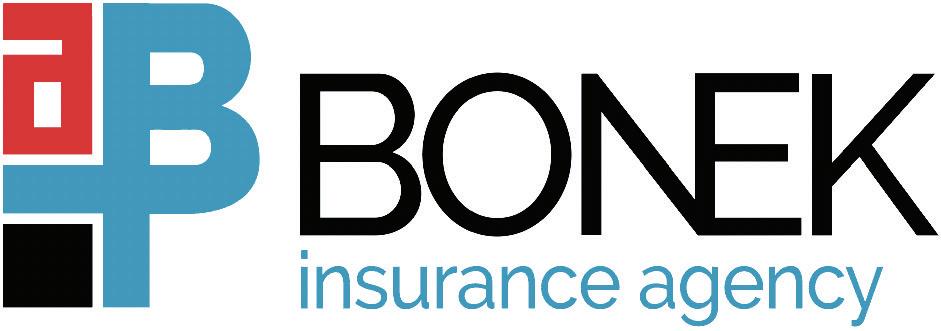
are repeat customers.”
While President Biden signed a bill just this past April that would potentially ban TikTok in the near future, Kebler says she and Dulude will continue to market their products through video and live streaming.
“We are going to continue live stream ing and selling our products on TikTok as if the app were never banned,” she said.
offer live streaming, video content and in-app marketplaces.

“I truly believe that at the end of all of this, there will be an alternative or an even
“A lot of Americans rely on TikTok for their income; I just happen to be one of them,” Kebler continued. “We are living in a digital economy and I have no doubt that we will continue to move forward rather than take steps back. We will pivot and join any application that wants to be as competitive and innovative as TikTok.”
Archie’s Dog Co @archiesdogco
When Ellie Kebler’s golden retriever, Archie, had a sudden seizure at a puppy meetup in 2022, she began exploring ways to better nurture her dog’s health.
“I wanted to start making all natural treats for him and just start feeding him healthier stuff rather than store bought, off the shelves,” she explained. “So that’s how Archie’s Dog Co was born.”
Based out of Traverse City, Archie’s Dog Co is an all-natural dog treat company founded by Kebler and her business partner/fiancé Jack Dulude.
In barely a year the company outgrew Kebler’s apartment kitchen, selling more than 20,000 bags of product, which are now carried in retailers across the state, all thanks to TikTok.
It was, as Kebler said, a bit of happenstance. After a particularly slow morning at the Sara Hardy Farmers Market last fall, she was facing down bags of unsold product. Instead of packing up and heading home, Kebler pulled out her phone and began live streaming on TikTok.
Though she had previously marketed other Archie’s Dog Co products on the platform, she hit gold with the all-natural treat line that day.
“Sales started rolling in,” she said. “I had one of my largest sales days on TikTok, ever.”
Following that whirlwind, Kebler and Dulude realized the power of TikTok Shop

as a marketplace for Archie’s Dog Co.
Launched just last September, TikTok
Shop is a tool that gives TikTok users like Kebler and Dulude a place to sell and buy merch straight from their feed. There’s no separate app, website or software needed.
And although Archie’sDogCo.com acts as a landing for the Archie’s Dog Co brand, Kebler said that 80% of their sales now come from TikTok– which boasts one billion active monthly users – vs. organic traffic brought to their website via search engines.
“We actually have customers who buy

treats from us every single live stream,” she said. “I’d say 40% of our orders daily are repeat customers.”
While President Biden signed a bill just this past April that would potentially ban TikTok in the near future, Kebler says she and Dulude will continue to market their products through video and live streaming.
“We are going to continue live streaming and selling our products on TikTok as if the app were never banned,” she said. “I truly believe that at the end of all of this, there will be an alternative or an even



better opportunity that comes along.”
Both Facebook and Instagram also offer live streaming, video content and in-app marketplaces.
“A lot of Americans rely on TikTok for their income; I just happen to be one of them,” Kebler continued. “We are living in a digital economy and I have no doubt that we will continue to move forward rather than take steps back. We will pivot and join any application that wants to be as competitive and innovative as TikTok.”





Though the success of Archie’s Dog Co might seem like a stroke of viral fortune, it was anything but. Here’s Kebler’s top strategies for jumping into video content and live streaming to grow your brand.
1. Be ready to pivot, always
Ever-changing algorithms and shifting user behavior has made pinning down one single video marketing strategy tricky. As Kebler explains, success on these platforms is less about numbers and more about a willingness to jump on new trends quickly.
“We are adjusting our strategy literally weekly because of how fast the app (TikTok) is changing,” said Kebler, who notes that Archie’s Dog Co is currently part of TikTok Shop’s demo group of sellers where they test new marketing and sales strategies for the platform.
2. Keep the camera rolling
“My number one advice that I give to people is: Jump into the video world,” said Kebler, who suggests that brand owners new to video content platforms like TikTok should dive in with short, sweet videos shot straight from their phone.
“You don’t have to be some videographer or photographer or anything like that,” she said. “Just start posting and start posting today because the more you post, the more people you’re going to reach and the more success your business will have.”
She also recommends incorporating relevant keywords to maximize search results within the app.
3. Find your live stream sweet spot
While live streaming offers a modern day QVC-style marketing approach, most consumers are busy juggling work and family life during the day.
“I would say if you’re wanting to dabble in the world of live streaming, focus on any time from 5 pm to literally 11 pm,” said Kebler. “That way, you’re catching your audience when they’re relaxed and ready for some virtual shopping, not juggling doggy daycare pickup.”


 By Beth Milligan
By Beth Milligan
The former Kmart building at the Cherryland Center – now owned by and home to the Traverse City Curling Club – is undergoing a rebranding as the new Center for Lifetime Engagement, Activity, and Renewal (CLEAR). Local entrepreneurs Lowell Gruman, Bruce Byl, and Casey Cowell are spearheading an ambitious effort to bring new investment to the site and make the CLEAR Center a bustling community hub featuring the Curling Club and Traverse City Philharmonic, onsite solar energy, multifamily housing, and new tenants ranging from 24/7 Golf to a possible trampoline park, roller rink, and/ or national retail store.
The trio is working to raise $4.5 million from accredited investors in the Traverse City area – combined with another $1.5 million in bank financing

the Curling Club. The Curling Club will remain a tenant in the space under a longterm lease and will continue to manage on-site operations as building manager. Due to both depreciation and the Kmart building’s location in an Opportunity Zone – a designation for economically distressed areas – restructuring ownership under an LLC can provide significant tax breaks and help drive new investment in the property, Gruman told the TC Ticker. That’s something the Curling Club itself couldn’t do. The nonprofit also never set out to own a building as large as Kmart, Gruman says, which clocks in at roughly 87,000 square feet and is part of a larger 10-acre lot. Buying the building was the only solution the Curling Club could find for achieving its real goal: building its 28,000-square-foot curling facility. “We were so focused on getting the curling center built, we didn’t think a lot about
(the rest of the site),” Gruman said. “Our goal wasn’t to be a building owner.”
The curling center’s opening last year brought new foot traffic and energy to the Cherryland Center that has attracted other interest to the site. The Traverse City Philharmonic (formerly Traverse Symphony Orchestra) signed a lease to become the next anchor tenant in the building, with the nonprofit’s new headquarters and a community music school under construction now for a targeted fall opening. A third tenant, 24/7 Golf – which has locations in Ludington and Grand Rapids offering 24/7 golf simulators and pickleball courts – just signed a lease last week and is beginning a construction buildout, according to Gruman.
That still leaves about 25,000 square feet of remaining space available, Gruman said. Interested tenants have ranged from a roller rink to a trampoline park to a national furniture retailer. There are no
Northern Michigan icon, Terri Ray, has rocked the airwaves since 1984 on KLT The Rock Station As Program Director and creator of the ultra-popular Lunch at the Leetsville Cafe, Terri has built KLT into one of the market’s highest rated radio stations and has kept it there for decades Her passion for radio and commitment to our community are big reasons why
You can see Terri in person this summer as she takes her show on the road with Lunch At The Leetsville LIVE - A look back at four decades of rock & roll in Northern Michigan
formal agreements yet with any of those prospective tenants, but “we’d like to get that space leased as soon as possible,” Gruman said. The Curling Club also recently sold a one-acre parcel fronting Garfield north of Wendy’s that is under construction now as a multi-tenant commercial building, including a planned Starbucks. With momentum building, Gruman, Byl, and Cowell see the potential for the newly-christened CLEAR Center to become a “vibrant community gathering place that will host artistic, athletic, and cultural activities,” according to a group statement. The trio is pursuing additional partnerships to meet that goal. One is with Heritage Sustainable Energy, which will install solar panels on the building roof this summer. That will lower energy costs for tenants and help the Curling Club literally build “ice from the sun,” the trio noted.





It’s not that things were bad over at Aster Brands a few years back. But Mattie Meadows had the distinct feeling that they could be a whole lot better.
Petoskey-based Aster Brands employs about 75 people and manages popular pre-cast concrete brands like Redi-Rock, Rosetta Hardscapes and more. They license these brands to businesses throughout the country and across the world, growing their own brand by establishing strong regional relationships.
And while the company was indeed growing, it felt at times like the right hand didn’t have a good idea of what the left was doing. Meadows, Aster’s marketing manager, remembers feeling that too much was going on independently. How could strategy be nailed down when the “big picture” was broken into dozens of pieces and stored in different places?
“All of our teams had their own process for storing and tracking data,” Meadows said. “Sometimes even each individual sales rep had their own process. It meant silos, and it meant a lot of extra time, with managers reaching out to reps trying to figure out what they were doing.”
What’s more, Meadows says, the management team had no clear way of as-
sembling that big picture, especially from a sales perspective.
“We didn’t have any good data that we could actually report out. There was no visibility,” she said. “We couldn’t create really solid sales pipelines or visualize the activities we were doing with our customers.”
Meadows and Kevin Loe, Aster’s vice president of customer engagement, knew that customer relationship management (CRM) software could help iron out the kinks and greatly improve efficiency. After an extensive process in which they researched several options and interviewed a dozen different companies, they settled on an outfit called Spiro about a year ago.
It’s been a game-changer, with their teams more in sync than ever before and a company that is better able to make data-driven decisions.
“Revenue is something that’s talked about a lot by the leadership and sales teams, and now that we have a CRM, there’s a much broader visibility to what we’re doing, revenue-wise,” Meadows said.
CRMs have been around for a while, with Salesforce and its market cap of $269 billion being the dominant market leader for many years. Studies show explosive


“Simply put, if you don’t have a (customer relationship management system), you have a ceiling on your company.
To grow in today’s world requires a certain level of productivity, and without a CRM you can’t achieve it.”
– Luke Mason, Vice President of Customer Experience, TentCraft
growth in the industry, with as much as 90% of companies with 11 or more employees now using CRM software, up from 50% or less a decade ago.
As they’ve become more popular, more companies have come along to nip at Salesforce’s heels, some that aim to
occupy a niche to better stand out from the crowd. Spiro, for example, is expressly made for manufacturers and distributors, something very attractive for the team at Aster Brands.
“With Salesforce or HubSpot, you hear a lot of people are overwhelmed because
of how much it can do,” Meadows said. “We wanted something really simple and straightforward that our sales team could just dive right in to get the hang of it and not be overwhelmed with all of the extra stuff.”
At their most basic, CRM systems allow sales teams to better keep track of potential leads and manage customer data (and interactions) all in one platform. By automating several aspects of the sales process, staff can focus on selling and worrying less about all of the supporting activities like logging calls and visits.
“The number one thing a CRM does is gives you your time back,” said Luke Mason, vice president of customer experience at Traverse City-based TentCraft. “As a sales rep, your most valuable commodity is time, and (a CRM) helps you free up more time to spend on opportunities and get them to the finish line.”
TentCraft, which employs about 90 people in the manufacture, marketing and distribution of custom tents and a variety of promotional materials, uses Salesforce. The platform is highly customizable, Mason says, and they’ve found great success using it to help reps maximize their efficiency.
“We created custom queues and auto-create tasks to help the sales rep see who they need to contact next and who they’re in the process with, quote-wise,” Mason said. “We’re visually organizing their pipeline so they can be as efficient as possible.”
Like Meadows, Mason is most enam-
ored with the ability to visualize the data. Having hard data supplied by Salesforce reporting makes it possible to make informed decisions to correct sales (and other) deficiencies, he says.
“Most companies always assume they have a demand problem, right? But when you’re really reporting and starting to look at different layers of the pipeline, you can find out where that leakage is,” he said.
“Maybe it’s not a demand problem. Maybe it’s a lead quality problem. Or we’re quoting a ton, but not winning them. You can find out where in the funnel you need to focus time and further develop strategy.”
There’s also good functionality built into Salesforce, Mason says. TentCraft builds and generates quotes directly within the platform, for instance.
“Simply put, if you don’t have a CRM, you have a ceiling on your company,” Mason said. “To grow in today’s world requires a certain level of productivity, and without a CRM you can’t achieve it.”
Over at Aster Brands, Loe says he is convinced that having a CRM in place will help take their already strong business to the next level.
“We want to continue to provide very good, high-quality jobs here in northern Michigan, and we want to go after different competencies of our business that we’ve never had before,” he said. “To be able to do that, we need the revenue and the revenue growth (that a CRM supports).”

While initially designed to help with sales, CRM software has wide applications outside of for-profit companies. Amy Martin is a Traverse City area Salesforce consultant who’s worked with many local nonprofits – Interlochen Center for the Arts, TART, Watershed Center Grand Traverse Bay and Grass River Natural Area, to name a few – as they’ve adopted Salesforce to manage their donors, projects and more.
“What I like to tell people is that when you’re talking about CRM...you can just substitute the word constituent for customer and then you can kind of see how it applies to nonprofit education, the public sector, all of that,” she said.
Just as a private company’s fortunes are tied to the strong relationships it builds with its customers, Martin works with her clients to ensure they stay on top of important relationships with donors, volunteers, advocates and other stakeholders.
“Those are your constituents, and you absolutely want and need a good way to manage your relationships with those constituents if you want to be successful as a nonprofit,” she said.
Much of the functionality originally built for sales translates well to donor management, Martin said, though the benefits don’t end there. Martin has also

helped clients utilize solutions that have been built within Salesforce by other nonprofits to fill a specific need, another bonus of that platform.
Like Mason and Meadows, Martin believes the biggest value of a CRM like Salesforce is gathering, aggregating, reporting – and acting – on previously scattered sets of data.
“(Without the CRM,) where’s the source of truth for all of this information? Many times when we’re implementing, it comes from a lot of disparate sources. A database on premises here. Maybe 17 spreadsheets over there. Another cloudbased platform here,” she said. “None of it talks to each other and you can’t report across any of them.”

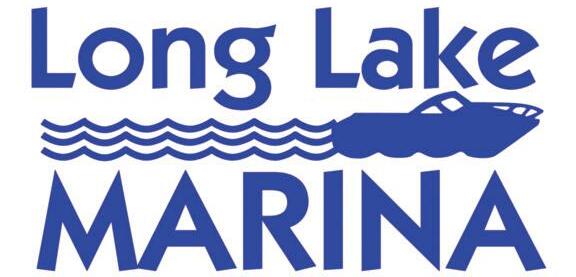





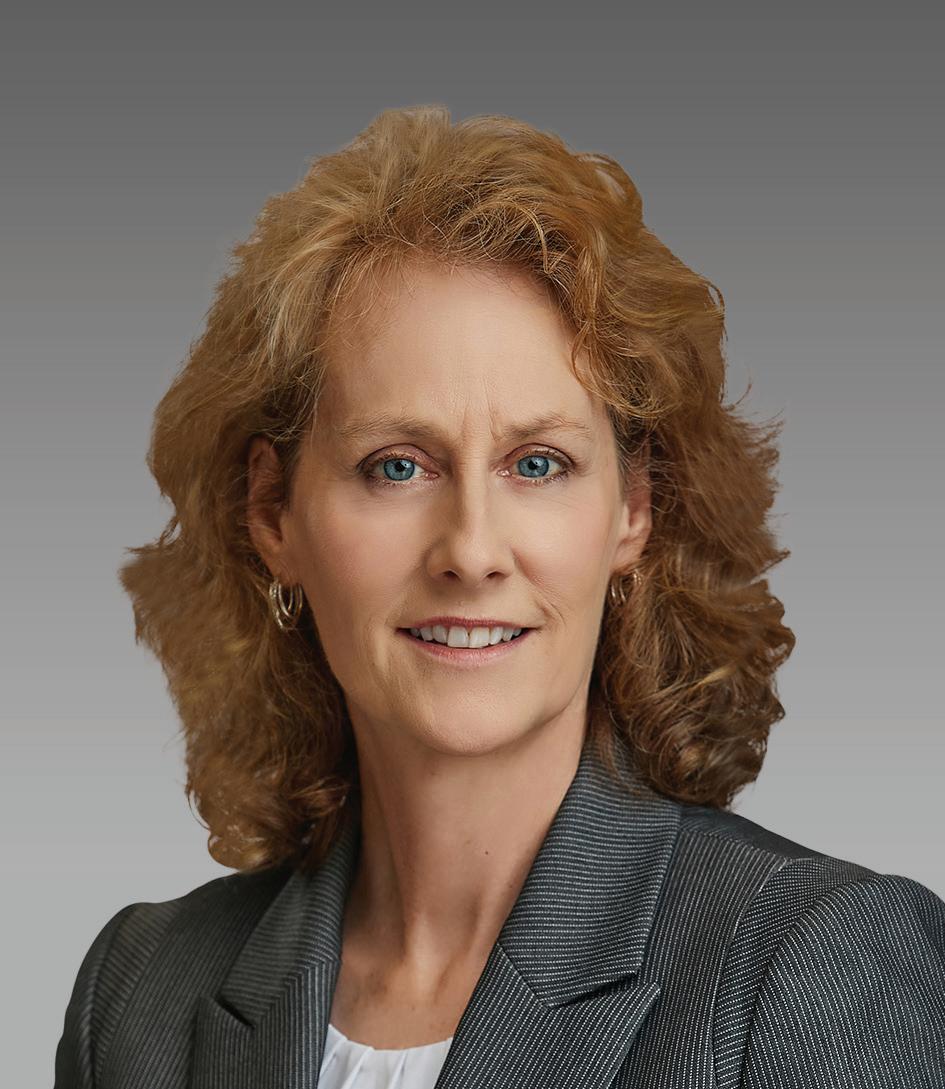

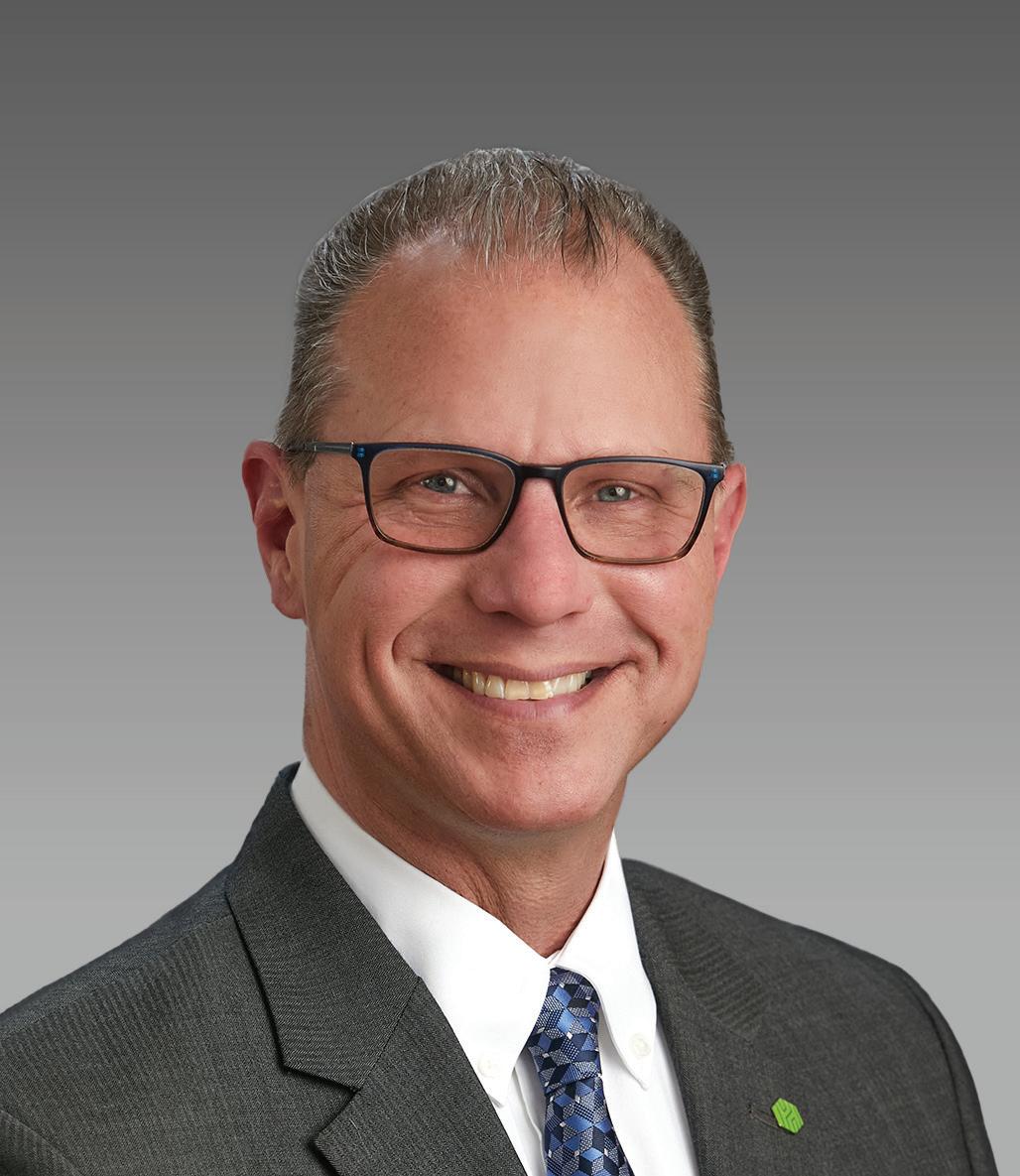

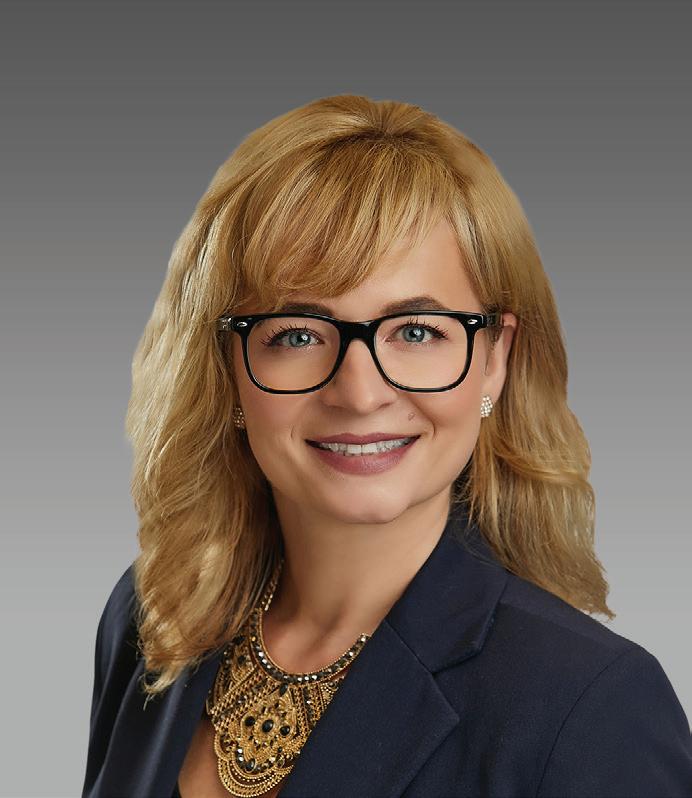

Statistically speaking, tech isn’t exactly the most female-friendly field.
Women hold only about a third of tech jobs, and they represent 10% or less of CEO or senior leadership roles. Generally speaking, stats like these are even worse in rural areas, where gender diversification in employment lags behind national trends.
The stat that sticks with Gretchen Swanson, however, is as much as 50% of women are interested in tech jobs, according to surveys. So if the aptitude and interest is there, what can be done to increase actual employment?
One way to help, Swanson believes, is to get these women together. Swanson is director of workforce development at 20 Fathoms, the Traverse City-based startup accelerator, and she heads up a Women in Tech group that meets the third Wednesday of the month at Earthen Ales at the Grand Traverse Commons.
The idea came from the realization that the area actually does have a relatively sizable pool of local women in tech jobs, but until a few years ago, nothing to bring them together.
“We have some amazing professionals who have retired in this area after amazing careers in technology fields, who want to mentor and want to connect,” Swanson said. “And then there’s of course those
who are still working. How can we convene them? How can we get them together? How can we create networks?”
Since the first meeting in August 2022, nearly 200 total women have attended the monthly meetups.
“It’s usually about 30-50% people returning after being to a previous event,
in that world.
“All the studies show that you’ve got to see it to be it,” she said.
What’s more, Swanson says, is that she and 20 Fathoms are very keen on building up the roster of women in the field in the area by making them aware of local employment opportunities.
“We have some amazing professionals who have retired in this area after amazing careers in technology fields, who want to mentor and want to connect. And then there’s of course those who are still working. How can we convene them? How can we get them together? How can we create networks?”
– Gretchen Swanson, Director of Workforce Development,20 Fathoms
that we’ve made amazing advances in all workplaces and some of the struggles that women specifically may have in a more male-dominated field had all but floated away and no longer existed,” Swanson said. “But some discussions do reflect that there are still some workplaces…where things are difficult sometimes.”
At a recent meetup, several new faces showed up. Among them was Amanda Ackerman, who works a remote job locally as a software developer for the University of Notre Dame. Ackerman says she sought out the group because her “heads down” job doesn’t afford her as much opportunity as she’d like to network.
which means the balance is 50-70% new faces, which has been so exciting,” Swanson said.
The meetings are not limited to those already in the field. Women of all ages interested in tech jobs have shown up, including some middle and high school students. Several studies have shown that girls’ interest in math and technology wanes significantly in their mid-teens, and Swanson is passionate about keeping young girls interested in technology and showing them that they can have a career
“We want to make sure women know they don’t have to leave in order to have these careers,” she said. “Really that’s what we’re so passionate about is the idea that you can have these careers in our region as businesses continue to either locate here, start here or grow here.”
For those in the industry, the meetups also serve as a way to gather “really candid advice” and learn how to best navigate a field in which women are still very much the minority.
“I was waiting to be surprised and hear
“Because I work for an out-of-state enterprise, I don’t have as much opportunity to connect with the community anymore,” she said. “It’s a growing area, women in tech in particular, and it’s exciting to connect with other women that have a similar mindset.”
What: Women in Tech Meetup
When: 3rd Wednesday of the month, 5pm-7pm
Where: Earthen Ales, 1371 Gray Dr., Suite 200, Traverse City



It’s not what you know, it’s who you know. Even in this age of Facebook and Instagram, LinkedIn and WhatsApp, in-person meetups and the connections forged there remain a bedrock of business.
Matthew Ross can attest to that. The executive director at the Botanic Garden at Historic Barn Park says the TC Ticker Recess after-hours event it hosted last year was a success, despite the vagaries of the weather. The night it was to take place, it rained so heavily the event was postponed. That didn’t stop several hardy souls from venturing out anyway.
“It was rained out. It was a monsoon. We still had 30 people show up and got several new volunteers,” Ross said.
When the event took place for real the next week, the response was overwhelmingly positive.
“My favorite quote is, ‘We’re the bestkept secret in town and we don’t want to be a secret.’ We had 190 people on site and four events booked as a result,” he said.
The results from most networking events are typically not as immediate. Broc Crandall, founder of the grocery delivery business Stocked, started hosting a monthly gathering for other entrepreneurs last December.
The group, called Founders First Friday, includes company founders of all
sorts and all ages gathering for camaraderie and mutual support.
“There’s no agenda. We just use each other as resources,” he said.
Founders First Friday started downstate. Crandall got involved when Stocked joined Michigan Founders Fund. Crandall says the members pledge 1% of their equity at an exit or at a buyout to Michigan Founders Fund. It is earmarked for other
Among his ideas was assisting local businesses to build a following with deals and discounts after finding there was nothing to help local brands grow.
“I had this idea, and they said, ‘We love it; Traverse City will eat it up,’” he said.
“Chase and Broc said, ‘We’ll be test cases.’ I don’t know if I would have launched if it weren’t for that.”
The result was WeHeartLocal.co, a
“These events and activities provide valuable opportunities for business and community leaders across our region to discuss issues, develop partnerships, and grow their businesses.”
– Warren Call, CEO, TraverseConnect
founders who are starting new companies. The fund led to the Founders First Friday in Ann Arbor, Detroit, Grand Rapids and elsewhere – including Traverse City.
One of the early Founders First Friday attendees was Brett Sigworth. It turned out to be pretty significant for him as he developed a friendship with Crandall and some of the other attendees, such as Chase Bonhag, CEO and co-founder of First Ignite, and Josh Hart, founder of Riley’s Candles.
“I’d just moved here and wasn’t sure what to do,” he said.
website that promotes exclusive deals and free giveaways from local businesses.
As the region’s economic development entity, TraverseConnect offers a number of programs. Unsurprisingly, many of them focus on networking, says Molly MacGirr, director of events and programs at TraverseConnect.
“Last year we did 40 events with 3,500 attendees,” she said. “There is networking at every single event we do, and we do some that are exclusively networking.”
One of the newer programs is the Fresh Coast Quarterly Club, an offshoot of the
Creative Coast program. Creative Coast is a talent attraction initiative that touts the region’s cultural, natural and career opportunities, directed in large part at remote workers and solopreneurs.
The Fresh Coast Quarterly Club takes place in a different location each quarter and is focused on offering those workers (and anyone else – everyone is welcome to attend) a chance to meet others and discover new friends and opportunities.
The point is to bring people together, providing them opportunities to network, which means they are more likely to stay.
“I am pleasantly surprised every time. There are always new people, always a nice mix,” said Katherine Marciniak-DeGood, director of marketing and communications at TraverseConnect.
Warren Call, TraverseConnect’s CEO, says events and programs are a key way to drive economic and business growth for the region.
“These events and activities provide valuable opportunities for business and community leaders across our region to discuss issues, develop partnerships, and grow their businesses,” he said.
Keri Amlotte, the director of marketing and communications for the entrepreneur/tech organization 20Fathoms, says the TCNewTech pitch night is perhaps as much about networking as getting funding for participants.

“It quickly became not only a pitch competition but a gathering,” she said. “Every month people come and meet up, see old friends, new friends, see what’s new.”
20Fathoms took over TCNewTech the end of last year.
“Networking is a long game,” Amlotte said, and one often leads to another. Such as the aforementioned Crandall.
“He’s pitched twice and won twice. He’s a really good example of someone who connected,” Amlotte said. “Those connections helped him find opportunities.”
Vernon LaLone is another who credits the organization and attendees with fostering his success. After working at a local lab, he saw a need to move in a

different direction.
“I learned a lot about the freshwater research innovation economy. That got me thinking how to translate (my skills) to other community needs,” he said. “I’d go to events and meet folks interested in building an innovation economy around fresh water.”
The result was Wave Lumina, a startup offering on-site measurement of environmental pollution, including PFAS and other pollutants.
“I hesitate to say we’re a success story. We’re just getting started,” he said. “We’re set up well, but time will tell.”
Serial entrepreneur and educational/ business consultant Will Kitchen credits 20Fathoms with providing the impetus for the Northwestern Michigan College-affili-


ated Office of Possibilities.
With an acronym like OOPS, what could go wrong? Well, in this case, nothing. The organization, which started from a series of brainstorming meetings among an ever-growing number of entrepreneurs, has championed successful launches by Valor Skin Care, Audaicia Elixirs, Riley’s Candles and other startups.
It was recently one of the driving forces behind the Aqua Action Great Lakes Challenge, a pitch event to select and provide seed money to three teams working to eliminate pollution in the Great Lakes. Wave Lumina was one of the winners, again showing the cross-pollination of the many such networking activities.
Even individual companies see the benefits of networking events. Local IT

company Safety Net hosts an IT Happy Hour for those in the industry. Company spokesperson Jenni Peoples says the evening is also open to clients and enables all those in attendance to meet others in the field or who have needs in a low-pressure environment, and provides an opportunity for professionals to learn about the company and vice versa, potentially a pool of potential hires when a need arises.
So sometimes networking is a long game. But sometimes it has immediate benefits. Ross said the Botanic Gardens has a goal of signing up 1,000 members; currently it has nearly 600. The success of the previous Recess prompted the Botanic Gardens to host another event this month, which he hopes will boost those numbers even closer to that goal.






Four key considerations could help young adults create a mindset to succeed with saving and investing for the future.
Michelle Wan, Wells Fargo Investment Institute senior wealth investment solutions analyst, has met many younger clients who have had reservations about investing. “Young investors may find themselves delaying investing for retirement because it seems so far in the future. Alternatively, they may enjoy trading volatile investment instruments for rapid profits,” she says. “They don’t realize how important it is to methodically develop planning and investing goals at a young age. Time is a young saver’s greatest ally.”
Here, Wan shares four key considerations for young savers when it comes to prioritizing long-term savings and investment plans.
1. Adopt a planning mindset
One key factor is having a planning mindset — a positive and proactive stance that could set savers on a path to positive financial outcomes. A planning mindset can provide a road map that can help strengthen a person’s financial future.
2. Start with small changes
Small changes in your financial behavior today could have a big impact on long-term success. Creating a budget, building healthy financial habits, and becoming more comfortable and familiar with investing could go a long way in contributing toward achieving long-term financial goals.
Some practices to consider:
• Automatically transferring part of your income into a savings account or an investment account
• Paying down student loans to avoid late fees and damage to credit scores
3. Begin saving and investing now


Start saving for retirement as soon as you can. The sooner you start, the more time every dollar saved has the potential to grow. If dollars saved early in your working years generate investment gains year after year, they can have a much bigger impact on the size of your account balance at retirement than you might think. Thanks to the power of compounding, as the dollars invested potentially earn returns, those reinvested returns can start earning returns, and so on — year after year.
“For younger investors, compounding returns become especially powerful given their longer time horizon, so an early start can make a dramatic difference in helping investors reach their financial goals,” says Wan
4. Take full advantage of retirement savings plans
If your employer offers a 401(k) plan, be sure to participate — and max out any kind of matching-contribution offers. They are the equivalent of free money.
Roth IRAs — to which you contribute after-tax dollars — are also worth a closer look because they offer tax-free growth potential. Investment earnings are also distributed taxfree in retirement if specific requirements are met.
“Another savings vehicle to consider is a Health Savings Account (HSA), which offers tax benefits to qualified investors,” Wan says.
A discussion with an investment professional about your investment goals can help you develop a long-term plan and strategies to potentially help you achieve those goals.

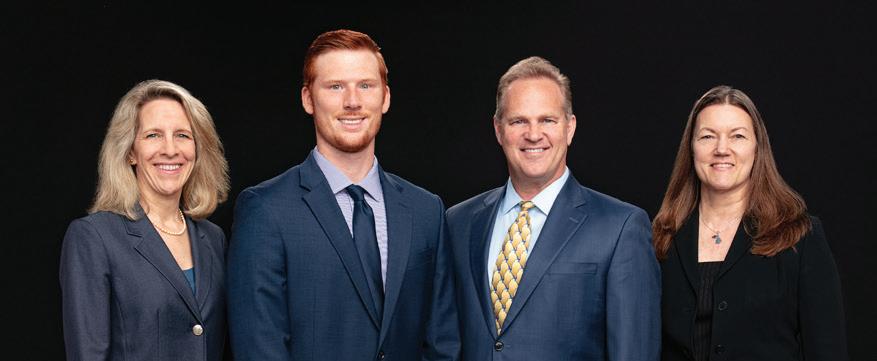 JULIAN | BLACK
JULIAN | BLACK
Wealth Management Group of Wells Fargo Advisors






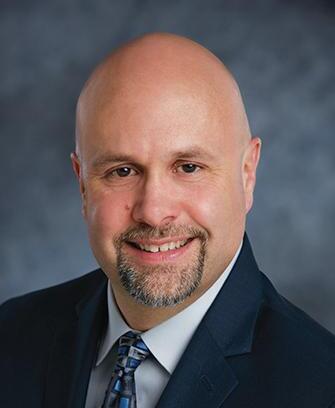
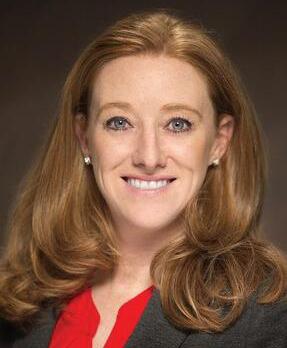



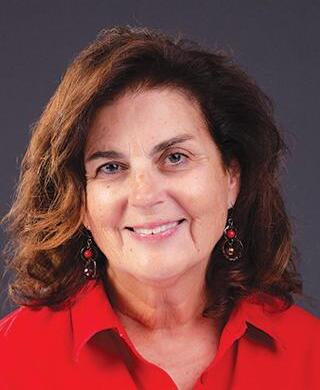

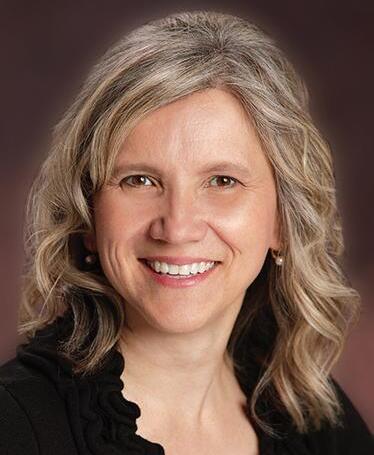



In Michigan, people typically head north to get away from it all.
But when it came to business, Safety Net looked south instead. Its expansion plans included Brighton in 2011, then moving the downstate operation to a more centrally located Farmington Hills.
Company founders Kevin Bozung and Beth Holmes-Bozung started Safety Net in 2003 in Traverse City.
“Kevin saw a need for IT services so he decided to be the guy to fill that need,” said Jenni Peoples, the company’s marketing and communication specialist.
Because he had a long history in IT work in southeastern Michigan, the move north from Lake Orion meant leaving behind clients who were interested in
Grand Traverse region, but kept an eye out for business in southeastern Michigan.
“He still had strong relationships with companies downstate,” Peoples said. Open-
“We were prepared for differences, but… people and their money behave the same way. They look for safety and trust.”
– Andy Kempf, CEO, 4Front Credit Union
continuing the relationship. That worked out, as the Bozungs started serving the
ing an office to serve them and pursue business opportunities there was a logical step.
We’re built differently - to us helping you protect and grow your wealth is about more than just your investment portfolio. Unlike many firms, we have expertise across financial planning, investing strategy, tax and estate planning, trust services, insurance solutions, and more. Our specialists across each of these areas communicate with each other about you, and with you, so you can enjoy everything you’ve achieved. We’re here to help you connect all the dots of your financial life.
Today the company has a team of 40 employees. While the majority are based out of the Traverse City office, there are 13 based out of Farmington Hills, while two are still based in Brighton. Peoples says 75% of the company’s business is located in the northern part of the state. That ratio may change as the company continues to develop business in southeastern Michigan, but it won’t be at the expense of its current clientele.
“Our plan is to continue to grow in both Northern Michigan and Metro Detroit,” she said.
Getting more business was also the reason for 4Front Credit Union’s expansion
downstate, but it was not due to pre-existing relationships. CEO Andy Kempf said it was driven by a general desire for growth and by the spread of downstate financial institutions into this region, such as Lake Michigan Credit Union and MSU Federal Credit Union.
“We had 15 branches between Cadillac and Sault Ste. Marie,” Kempf said. It followed its lake shore footprint in northwestern Michigan as it ventured south, opening branches in Muskegon, Holland and Zeeland.
Kempf says there is not a significant difference in its customer bases.
“We were prepared for differences, but…people and their money behave the same way. They look for safety and trust,” he said.
What is different is the level of familiarity people have with the institution.
4Front is the oldest credit union in the region. It started in 1954 as Governmental Employees Credit Union, before transitioning to Members Credit Union. Upon merging with Bay Winds Federal Credit Union in Charlevoix, it rebranded as 4Front Credit Union in 2015, with offices across northern Michigan.
“People knew us well. Downstate that’s not true. We don’t have that recognition,” he said.
That means devoting more time, energy and money toward marketing and branding in that market.
“We take extra time and marketing money downstate,” said Kempf. One difference Peoples and Kempf
note is size, in terms of their customer base and/or the competition.
“Though many of them are just like our northern Michigan clients – 20-50 people, in manufacturing and engineering or financial services – the companies we support in metro Detroit tend to be larger than those in northern Michigan,” Peoples said.
Kempf says the size differential is distinct between 4Front and other credit unions downstate.
“4Front is the largest credit union headquartered in northern Michigan. Downstate there are a lot of large credit unions, (some) six to nine times our size,” he said.
Kempf says 4Front has to differentiate itself with superior customer service while offering the same level of products as those larger institutions.
“We want to blend our customer and client service with (being) tech forward, having the technology to compete with big banks,” he said.
Whether looking at institutions getting a foothold in this region or seeking new customer bases downstate, Kempf says the goal is always to provide what its members need.
“We’re not scared of competition,” he said. “If we’re not good enough, then shame on us.”
They are not the only local businesses to expand downstate. Cosmetic Skin and Laser, which opened in Petoskey 2001, was followed by Traverse City in 2008, Naples, Fla. in 2022, and Bloom-

field Hills this year. Places like Cherry Republic, Grand Traverse Pie Company, Mammoth Distilling and Fustini’s Oils and Vinegars have similarly opened in Grand Rapids, Ann Arbor, Holland, Portage, East Lansing and elsewhere.
But outside the food service and occasional retail industries, it’s more likely that downstate businesses will seek to establish outposts in Traverse City rather than the reverse. Workplace design firm and office furniture supplier Custer is based in Grand Rapids, with offices in Benton Harbor, Kalamazoo, Holland, Traverse City and Fort Wayne. Kent Companies started in Grand Rapids before moving into Detroit, Lansing and Traverse City. Rehmann has offices scat-
tered across Michigan, including Traverse City, as well as Ohio and Florida.
Both Kempf and Peoples say continued growth downstate won’t negatively impact services in this region.
“Up here in northern Michigan it’s business as usual,” assured Kempf. Peoples agrees.
“Being an IT partner to businesses in northern Michigan will always be a focus – it’s where Safety Net started 20 years ago, and it’s where we’ll continue to have a large presence,” said Peoples. “We simply want to offer that same experience of working with a friendly, well-established, reliable and professional managed service provider to organizations in southeast Michigan.”


WEDNESDAY JUNE 5 • 5pm-7pm
1490 R ed Drive - Traverse City
Food & beverages from: Jimmy Johns and Chick-Fil-A, Mawby, Farm Club, St. Ambrose, Furnace Street Distilling, Audacia Elixers. Served by Roaming Nomi Mobile Bar.
Enter to win: Package for four to any upcoming class/workshop of choice, Botanic Garden memberships, bonsai trees, and Kayak, Bike, and Brew Tour tickets!
Live music and entertainment: Andrew Lutes live, tractor tours of the grounds every 30 minutes, Sakura Bonsai Society providing bonsai demos, floral arrangement demos
Recess is brought to you by

Balancing the immediate demands of the workday with the aspirations of longer, meaningful projects is an ongoing test for most of us. The book “Slow Productivity” takes on this with some encouraging results.
“Slow Productivity” is the eighth book for writer and MIT Professor of Computer Science Cal Newport. His previous works center on being intentional about unplugging from computers, screens and devices in order to think clearly and produce higher quality work.
In his breakthrough book “Deep Work” (2016) Newport warned about the time suck of emails and social media culture, constantly distracting us from performing superior work. Newport emphasized a similar theme in his 2019 book “Digital Minimalism,” emphasizing meaningful activity over passive online consumption. In “A World Without Email” (2021), Newport dug further into his earlier principles, describing how a workday full of email and messaging takes our attention away from what we should be doing. Recalling the connected themes of Newport’s earlier books made me wonder what “Slow Productivity” would offer. There had to be more than Newport forwarding his unplugging, internet diet mantra.
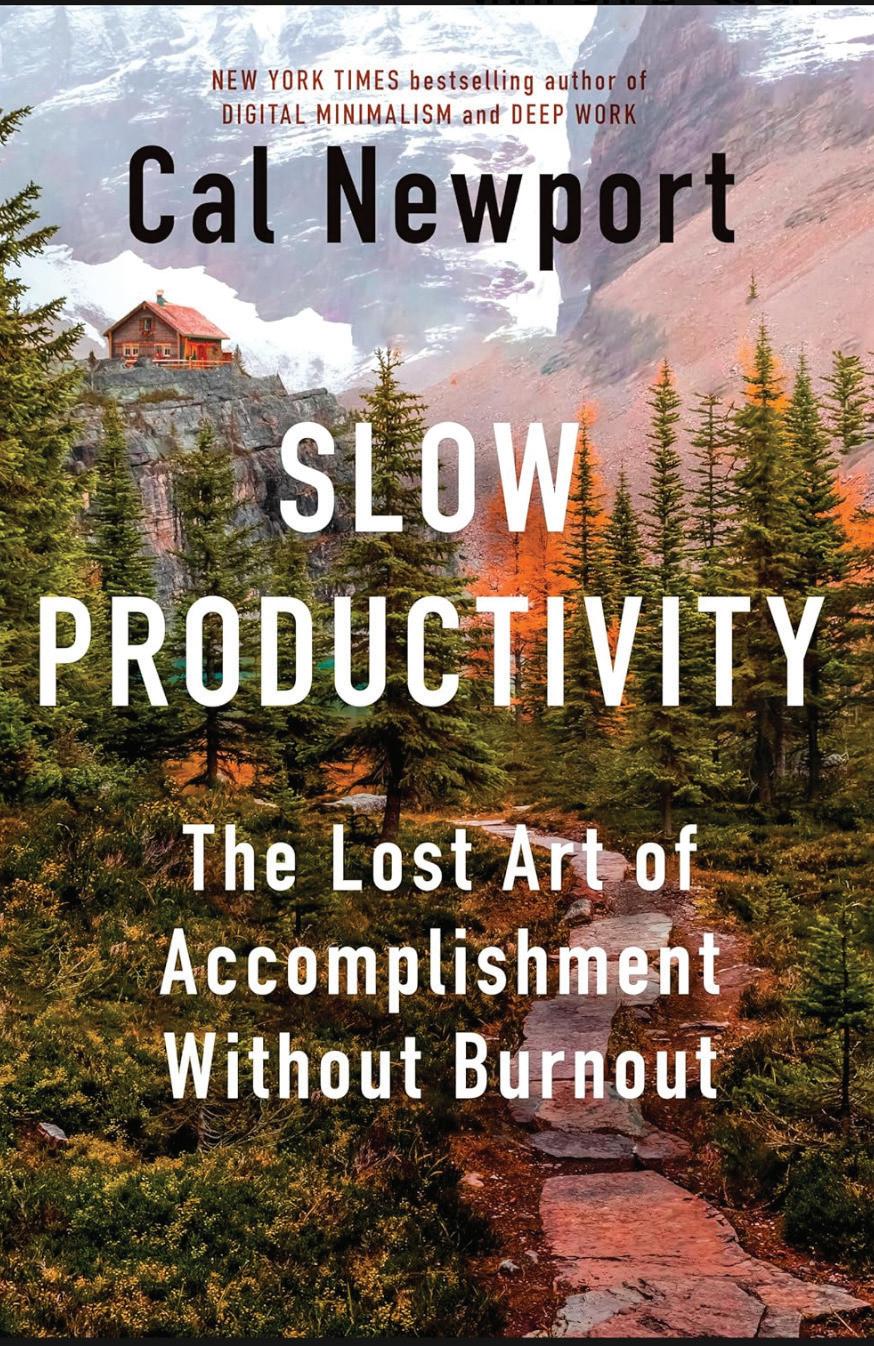


In “Slow Productivity” Newport begins by tracing the definition of productivity from the agrarian age of farming through the industrial revolution, to the modern knowledge economy. Trying to nail down what productivity means today is difficult. Knowledge workers have simultaneous projects and demands, broken up by incoming emails, chat messages and texts. These interrupters can be dictated by company demands, not the personal choice to detach as Newport emphasizes. Some of this is covering familiar territory.
Newport lays out a series of principles that recommend a slower, more thoughtful work ethic. These include sections on “Doing Fewer Things,” “Work at a Natural Pace,” and “Obsess over Quality.” What results is a reboot of Aesop’s fable “Tortoise and the Hare.” In this updated version, the slow and steady tortoise eventually wins the race because the hare is constantly stopping to read his email and post Instagram photos.
The first section of “Slow Productivity” encourages readers to examine and reduce existing obligations. Newport provides strategies such as automating recurring tasks (i.e., paying bills) and reducing commitments (knowing when to say no). The idea is to use a reduced workload to further advance goals and projects that are the most satisfying.
Larger, significant goals deserve and require lots of time. Newport uses the example of songwriter and producer Lin-Manuel Miranda’s journey. Getting his college project musical “The Heights” to the Broadway stage took Miranda seven years of rewrites, critiques and professional growth. Newport urges readers to not lose sight of these important, fulfilling
By Cal Newportprojects by doubling timelines to as much as five years to reduce pressure and to gain wisdom for fine-tuning a final product.
Newport stresses the need to be obsessed with quality work, not with what others want you to do now. He uses the example of the musician Jewel, who early in her career turned down a $1 million singing contract, understanding that the process for writing and performing music she preferred was far different from constant touring and churning out hit songs that the industry demanded.
“Slow Productivity” also lays out strategies for starving off the pressures of “pseudo productivity,” or the activity of talking more about work than performing meaningful projects. He exhorts readers to “…obsess over the quality of what you produce, even if that means missing opportunities in the long term.”
Taking this long view to recognize that success takes time and thoughtfulness is appealing. Like his previous works, taking on Newport’s advice is easier than applying it to realistic work situations. One working with a team that expects quick work day responses may find that the organic pace Newport recommends is not always possible. Regardless, there is both practical and aspirational advice in “Slow Productivity” that is worth taking a pause to read and apply as much as possible.
Chris Wendel works for Northern Initiatives, a mission-based lending organization based in Marquette, Michigan. Northern Initiatives provides funding to businesses throughout Michigan and online business resources through its “Initiate” program to small business owners throughout the United States. Wendel lives and works in Traverse City.












Crisis Intervention Services
• 24/7 Crisis Line 833-295-0616
• Crisis Welcoming Center, 105 Hall Street, Traverse City, 8A-5P, M-F
• Mobile Crisis Teams for Adults and Children
• Coming later in 2024: Grand Traverse Center for Mental Wellness
Kandu Island Drop-In Center – a safe place to be, on S. Garfield.
• Therapy
• Counseling
• Case Management
• Autism Applied Behavioral Analysis
• Specialized Residential Services
• Long-term Services and Support
• Traverse House & Club Cadillac Clubhouses


When AI first went mainstream in 2022, some industry leaders reacted with hesitancy.
Others, like FirstIgnite CEO Chase Bonhag, jumped at the opportunity to grow his Traverse City-based software company.
Founded in 2019 by Bonhag and CTO Cody Pawlowski, FirstIgnite’s original business model used “really clunky and really slow” technology to help universities prospect corporate partnerships.
Once AI came onto the scene, FirstIgnite recognized the opportunity to restructure around it. Now, they offer AI-powered software subscriptions to institutions like Michigan State, The University of Chicago and Notre Dame.
“We’re in a complex, very niche market,” said Bonhag.
Breaking down FirstIgnite’s mission, Bonhag says that ultimately, their software is a business development tool that helps research universities – which conduct more than $90 billion in U.S. research annually – prospect companies who can use those research findings to create new products and technologies for profit.
Once those matching companies are identified, the universities can then reach out to them for partnerships.
Where lists of these potential partnerships used to take time for research departments to find, FirstIgnite’s software comes up much more quickly, Bonhag says.
“Minutes. Seconds, really,” he said.
It does so by using large language models like ChatGPT and Google Gemini to analyze data from the university’s research papers against publicly available information about companies in the medical, pharmaceutical and tech spheres (just to name a few), returning the best matches.
Though FirstIgnite’s actual university-to-company partnerships are proprietary, Bonhag explained it like this: A partnership between a car manufacturer and a university that just wrapped up research on driverless vehicles is “a perfect example of a positive
outcome that could come from our software.”
The streamlining software has been a hit, steeply reducing the time it takes universities to capitalize on their research.
Since FirstIgnite’s AI subscription launched a year ago, it’s used by more than 50 universities globally.
For leaders and industry professionals still on the fence about integrating AI into their workflow, Bonhag shares that without it, FirstIgnite might have died on the vine.
He reflected that if they’d stuck to their old “really clunky and really slow” technology, they would have been outpaced by any competition that welcomed the evolution of AI. Privy to the motivations behind AI-resistance, Bonhag urged skeptics to view the technology more as a tool and less as a threat. He also challenged them to harness AI as a learning opportunity and a channel for expanding competencies. Understanding how to prompt and leverage AI for better workflow outcomes is “a true skill set,” he added. “And it’s something that not everyone’s taking advantage of.”
While FirstIgnite’s success has Bonhag and the rest of the FirstIgnite team creating connections all over the world, Bonhag hails his hometown of Traverse City as a tight-knit community of innovators and a collaborative, non-competitive hub for startups like his.
“You can do these things here and I think we’re proving that,” he said. “I think that’s going to help to build confidence for other future entrepreneurs that say (to themselves) ‘Could I start a startup software company here?’
“And the answer is yeah, you definitely can. Absolutely.”
20Fathoms sponsors this column. Designated by the Michigan Economic Development Corporation as the Small Business Support Hub for Northwest Michigan, 20Fathoms is a nonprofit organization providing critical services for the region’s entrepreneurs. It specializes in accelerating the growth of innovative and scalable startups. Learn more at 20Fathoms.org.


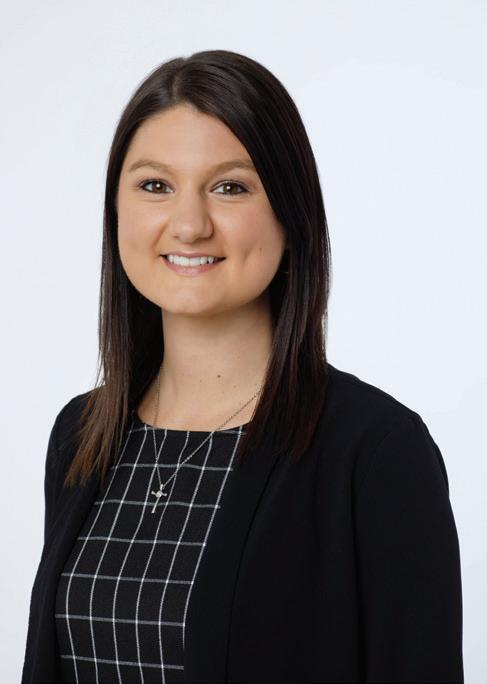







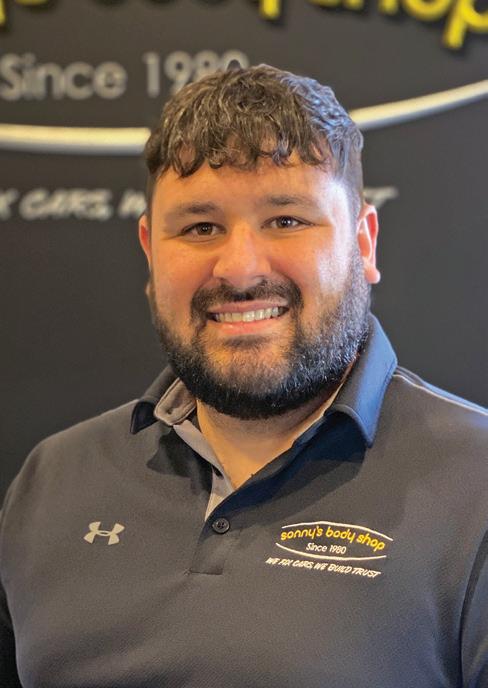

>> BANKING
1 - Robert G. Mannes has been appointed to the board of directors of West Shore Bank and West Shore Bank Corp. Mannes currently serves as president and CEO of Core Energy, LLC in Traverse City, an oil and gas exploration and production company he founded in 2003.
2 - Norm Plumstead, Honor Bank president and CEO, has been appointed to a two-year term on the FDIC Advisory Committee on Community Banking. The committee is comprised of community bankers from around the country, established to provide the FDIC with guidance on policy issues impacting small community banks.
3 - Amanda Stacy has been promoted to vice president, branch manager of Honor Bank’s downtown Honor branch. Stacy has worked for the bank since 2015. Most recently, she served as Help Center manager.
>> HEALTH CARE
Table Health in Traverse City announces the following:
4 - Amy Bodnarchuk, M.D. has joined the direct primary care team. Dr. Bodnarchuk is a board-certified
internal medicine physician and specializes in preventative care and chronic disease management.
5 - Ali Fitzgibbon is a new mental health telehealth therapist. Fitzgibbon specializes in cognitive behavioral health and strength-based interventions and works with clients experiencing depression, anxiety, and trauma-related symptoms.
6 - Joanna Heinz is a new mental health telehealth therapist. Heinz brings experience in both dialectical and cognitive behavioral therapies, supporting individuals dealing with depression, anxiety, trauma, and relationship challenges.
>> REAL ESTATE
7 - Tammy Martin has joined EXIT Realty Paramount in Traverse City as a REALTOR. She brings a background as a paralegal and judicial assistant to her new position.
8 - Connor Miller , government affairs director for Aspire North in Traverse City, has earned the
REALTOR® Association Certified Executive (RCE) designation from the National Association of REALTORS®. The RCE designation recognizes exceptional efforts and enhanced skills in every aspect of REALTOR® association management.
9 - Erin Slomers has joined CENTURY 21 Northland, Traverse City office, where she specializes in residential sales.
10 - Mariah Sniegowski has joined CENTURY 21 Northland, Traverse City office, where she specializes in residential sales.
>> OTHER
11- Kyle Agruda has joined Sonny’s Body Shop in Traverse City as production manager. Agruda brings more than 10 years of experience in the collision industry to his new position.
12 - Andrea Argy has joined Crystal Mountain’s Crysta l Spa in Thompsonville as spa director. Argy brings more than 20 years of experience in the spa industry to her new role. Most recently, she served as assistant spa director at the Omni Grove Park Inn in Asheville, NC.


Ron and Mary, the dynamic duo
their flooring adventure in 1999!


Their mission? To combine quality flooring with wallet-friendly prices, a vision brought to life with a little help from their friend and mentor, Brian Simsa. Imagine a place where shopping for flooring is as comfortable as slipping into your favorite pair of slippers – that’s ACB for you. And yes, with flying pigs and all, this barn has become a home to countless satisfied (and sometimes squealing) customers.
Now, let’s wind the clock back. At the tender age of 12, Ron was already mastering the art of flooring under his dad’s watchful eye. Those early lessons weren’t just about installing tiles and carpets; they were about installing confidence and pride in every square foot he worked on.
Fast forward to today, and Ron’s mantra still echoes through the aisles of ACB: “If you love what you do, you should be doing it.” It’s this passion that’s been the cornerstone of ACB’s success and vibrant work culture.
Ever wondered about the quirky “Where Pigs Fly” slogan? It’s a nod to the unlikely, the unexpected, and the outright fun spirit of ACB. These pigs aren’t just any ordinary barnyard celebrities – they’ve starred in ACB’s advertisements, pranced around as movie stars, voiced their opinions in editorials, and danced their way into the hearts of locals on US 31, Chums in Traverse City. They’ve been the heart and soul of ACB’s unique brand and remained adorably youthful, embodying the spirit of ACB’s slogan, “STILL KIDS AFTER 25YRS!”
Ron often affectionately says, “Mary is the brains of this outfit,” a statement that underscores the teamwork and dedication that has fueled their journey. Over the years, ACB has not just flourished as a business but also as a pillar of community support. Their contributions span from the National Cherry Festival to Big Brothers Big Sisters, the Grand Traverse Veterans coalition, TCAPS, local churches, and Christian radio stations WLJN and FUEL FM.
Their resilience is nothing short of inspiring. The devastating rainstorm of 2006 tested their grit when it flooded their store and destroyed their inventory, an event not covered by insurance. They also weathered the 2008 recession, sticking to their philosophy of low overhead to keep prices affordable. The most heartbreaking challenge was the loss of their son, Corporal Michael Reese of the US Marine Corps, in 2013. Michael, often seen joyfully dancing in the Flying Pig mascot costume, during his high school years, remains a cherished memory.
Today, ACB is a testament to family business endurance, with Ronnie and Ben gearing up to take the reins. Ronnie’s expertise shines inside the store & proud to have Ben by his side, leading the best installation crews in N. Michigan. Ben leads the installation division carrying on in his dad’s footsteps as a master flooring mechanic, often referred to as a perfectionist. As Ron and Mary reflect on their journey, they take pride in their groundbreaking ad campaigns, especially the unforgettable “Honey, I’m Home” commercials featuring those same kids who continue to appear in every ACB ad to this day.
ACB’s story isn’t just about selling floors; it’s about laying down memories, building community, and staying young at heart, even after 25 remarkable years. Here’s to Ron, Mary, and the entire America’s Carpet Barn family – may your floors always be as strong and vibrant as your spirit!



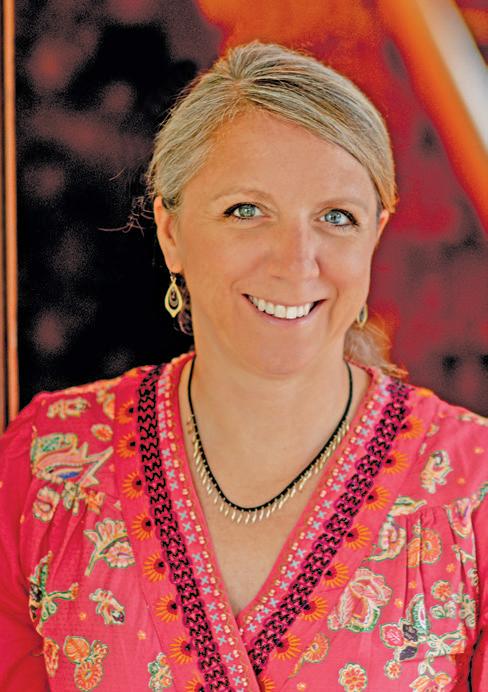






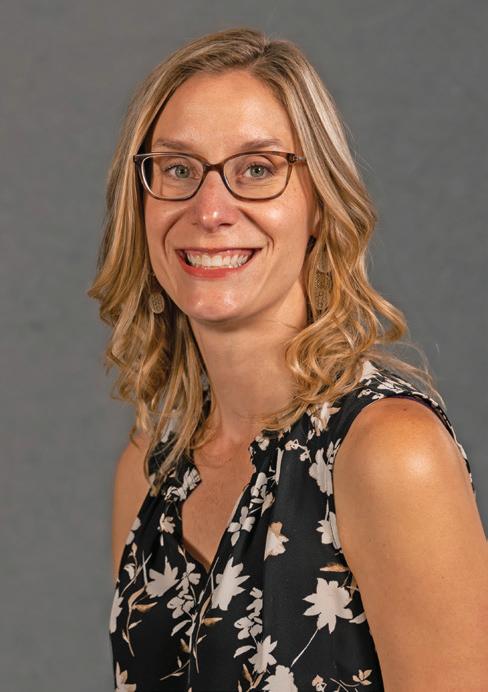

13 - George Brown has joined Nowak Cabinets in Traverse City. Brown brings a background in real estate, business, and construction, including an interior design firm and showroom serving the San Diego waterfront and luxury market.
14- Zac Forbes was recently promoted to estimator at Springfield Commercial Roofing and Transport in Kingsley. Most recently, Forbes was a field technician.
15 - Mary Gillett is the recipient of the Michigan Legacy Art Park’s Legacy Award for 2024. The award honors those who make a significant impact on Michigan’s arts, history, culture, or environment. Since 2018, Gillett has served as the executive director of the Northwest Michigan Arts & Culture Network.
16 - Angela Goodall, co-owner/designer of Kitchen Choreography in Traverse City, has been selected to join Masterbrand Dealer Designer Council. Goodall is a 25-year veteran of the design industry.
17 - Brandon Jenkins has joined PB&J Marketing as creative director. Most recently, Jenkins was creative director for 910 Media Group. He also serves as vice president of AAF – Northern Michigan, the region’s nationally-affiliated advertising organization.
18 - Dr. Jennifer Link has joined Northwood Animal Hospital in Traverse City. Dr. Link brings a background in small animal general medicine and surgery.
19 - Michael W. Roof, director of Grand Traverse County Department of Veterans Affairs, was recently president of the Michigan Association of County Veteran Counselors. Roof has been with Grand Traverse County since 2018.
20Fathoms in Traverse City recently announced the following:
20 - Delaney Keating is the new director of entrepreneurship & commercialization. Keating oversees the organization’s business incubation and acceleration initiatives, access to capital program, and technology transfer. Most recently, she was managing director of Pando Telecom and previously was the executive director of Startup Colorado.
21- David Kronberg is director of regional small business support hub. Kronberg develops the strategy, resources, and community partnerships that enable 20Fathoms to provide startup support services to entrepreneurs. Most recently, he served as director of entrepreneurial services & outreach at Innovate Marquette SmartZone & Invent@NMU.
22 - Maria Purvis now serves as manager of events & special programming, producing the TCNewTech pitch competitions, lunch-and-learns, and other events for the startup community. Purvis originally joined the 20Fathoms team in 2020 as manager of community engagement.
23 - Ashley Sloat has joined the 20Fathoms board of directors. Sloat is the president and director of patent strategy at Aurora Patents in Traverse City. Sloat is a USPTO-registered patent practitioner.
24 - An nie Zimmerman has joined the organization as manager of member engagement, overseeing the coworking space and membership program. Most recently, she was COO of Anchorlight Creative, where she helped women entrepreneurs with strategic planning and marketing initiatives, and also was co-founder of On e Oak Bride, a former bridal shop in Traverse City.
Please send Newsmakers by the 10th of the month to news@tcbusinessnews.com








